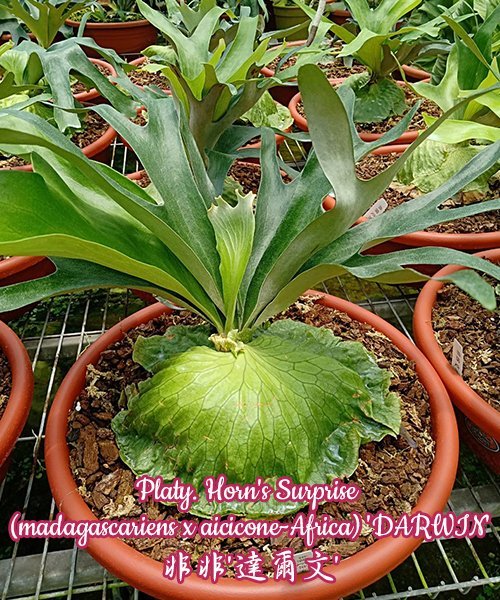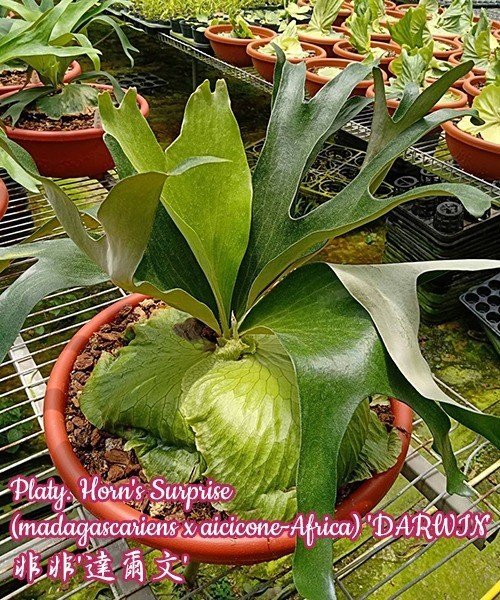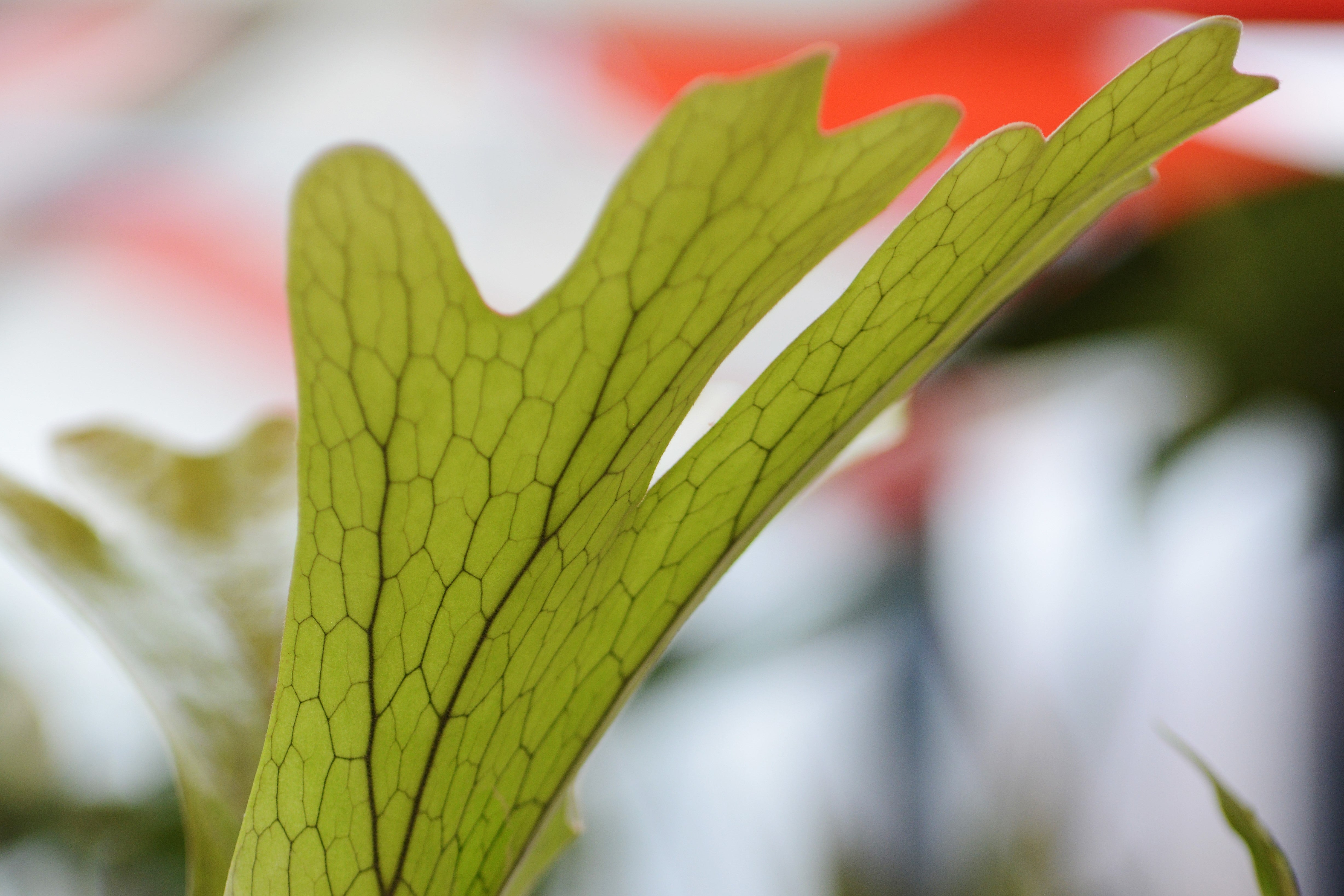
Hertshoornvaren (Platycerium)
51 products
Showing 25 - 48 of 51 products
These beautiful houseplant has a whole one separate. For nature lovers it looks like a green antlers on the wall. Other names for this beauty of a plant include Elandgewei Varen, Platycerium, Hertshoorn Sailing and Takbok Varing. On this page a large number of the most are available Rare species in the world.


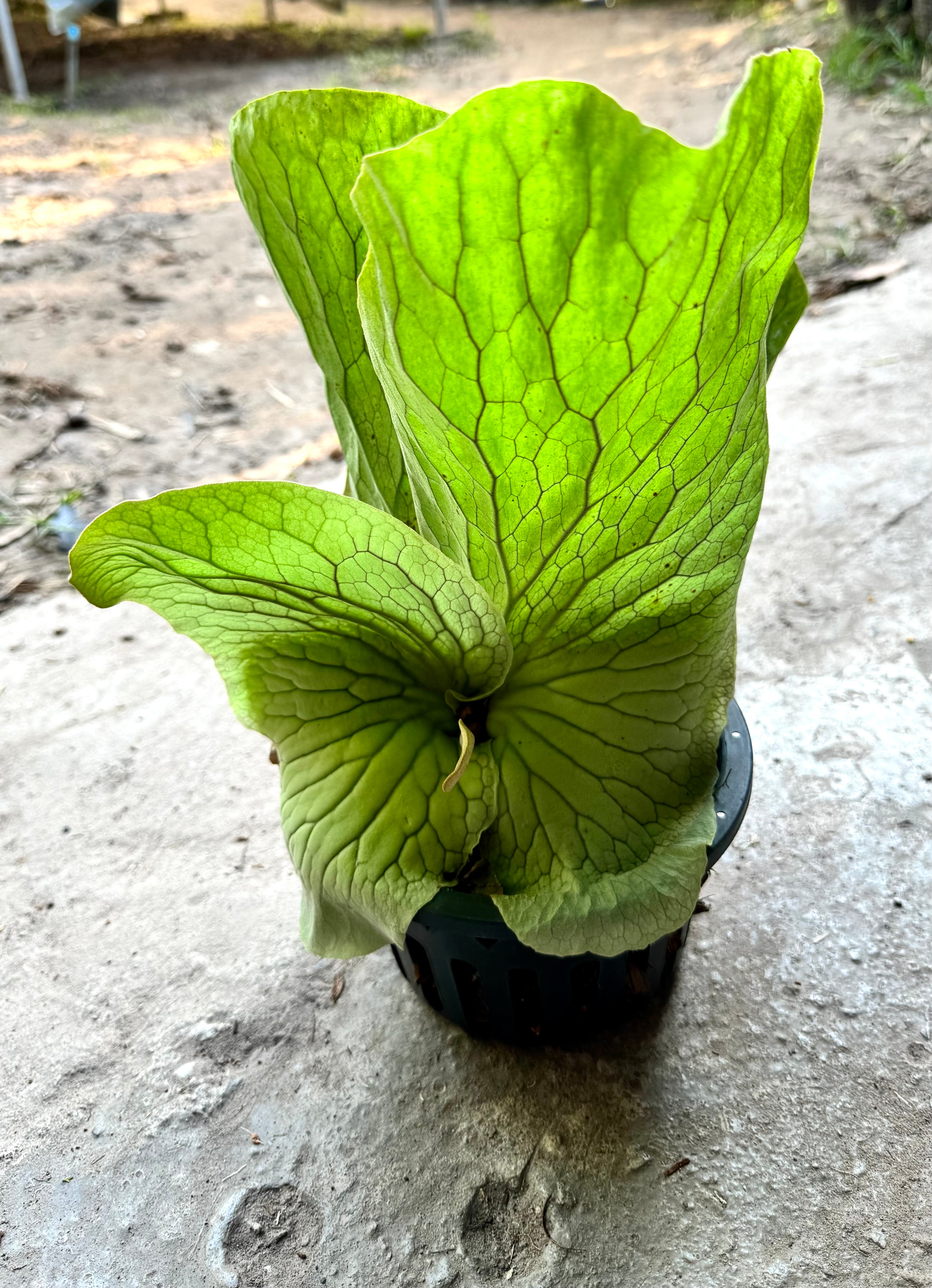
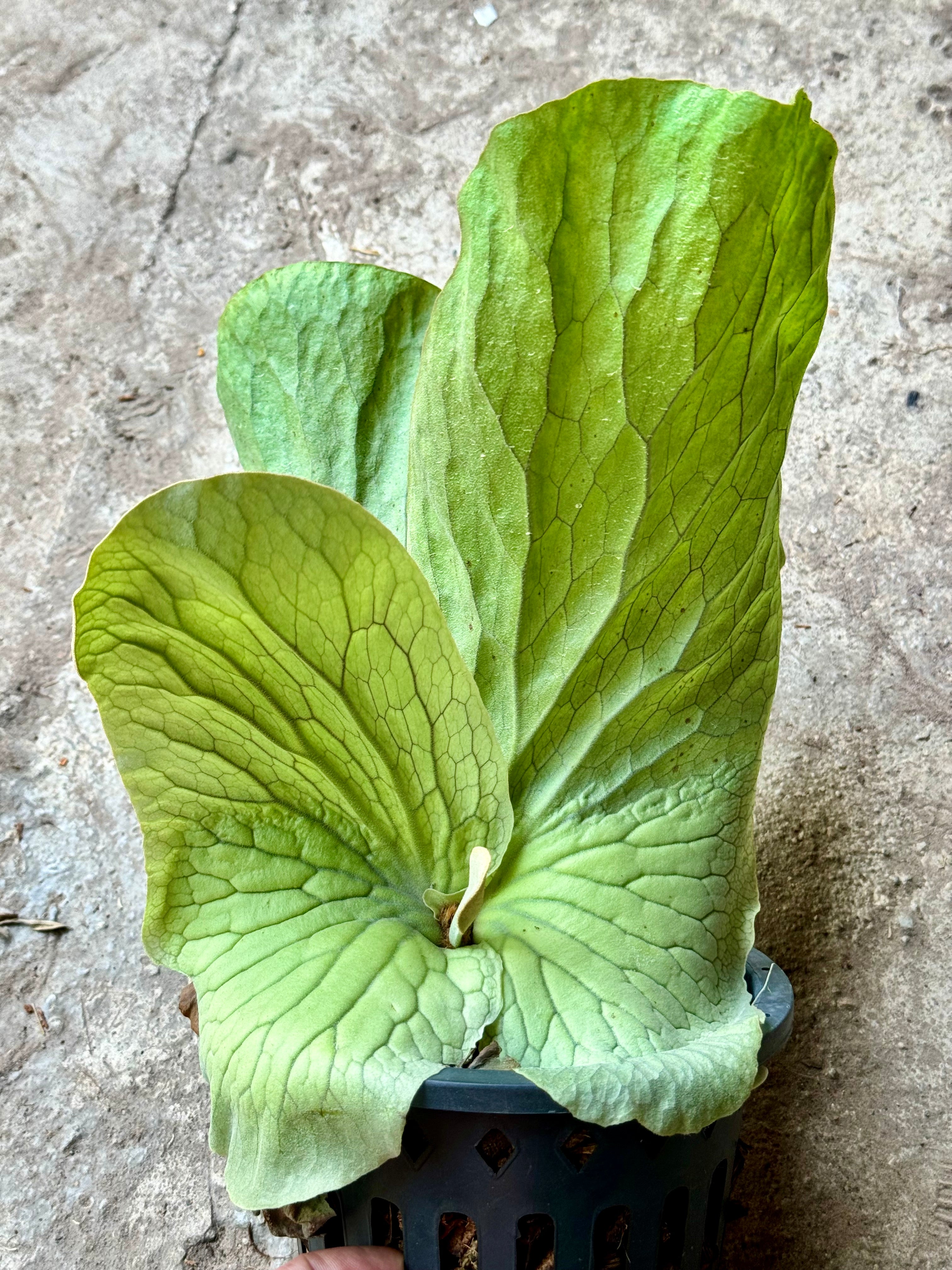


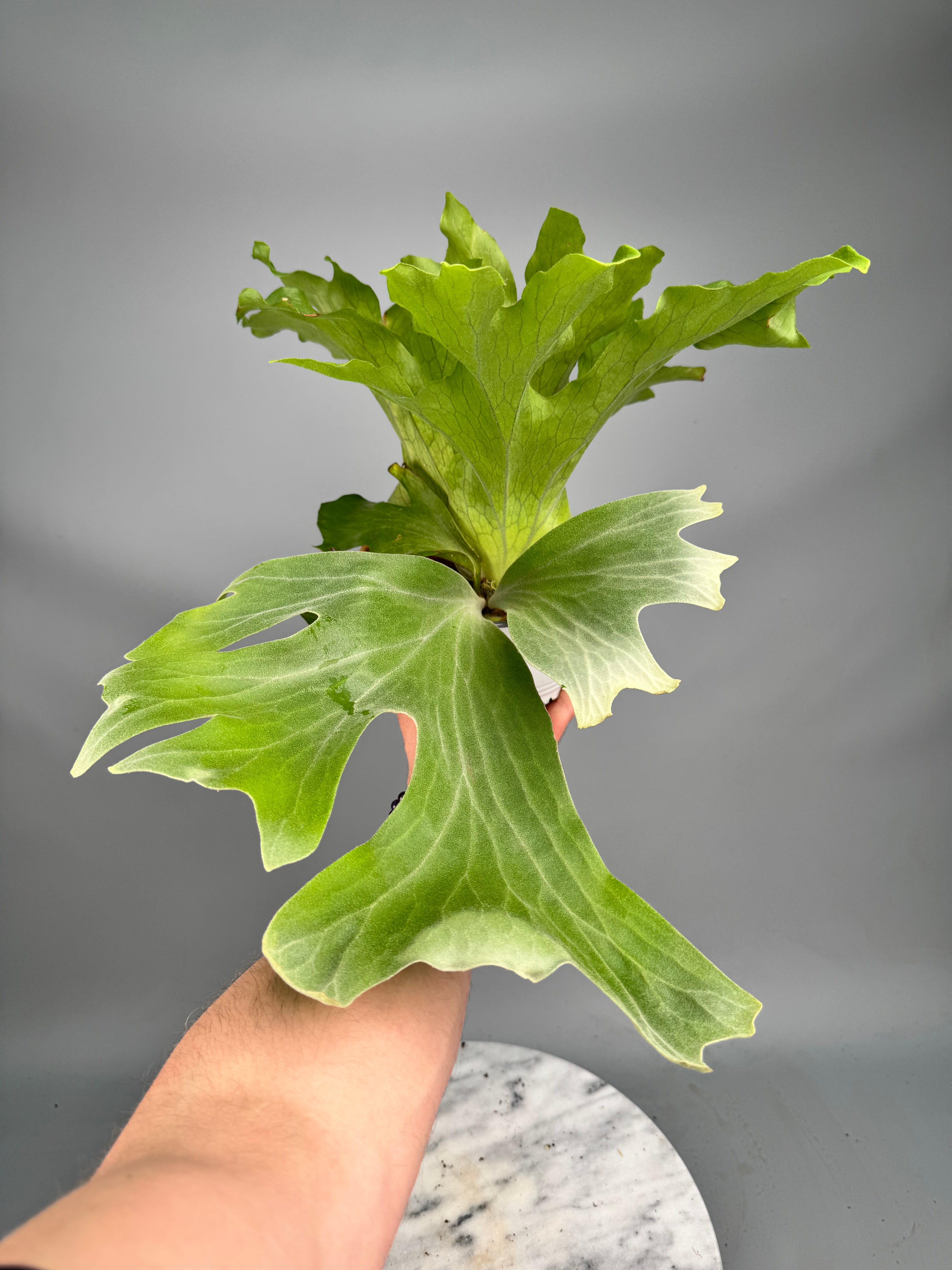
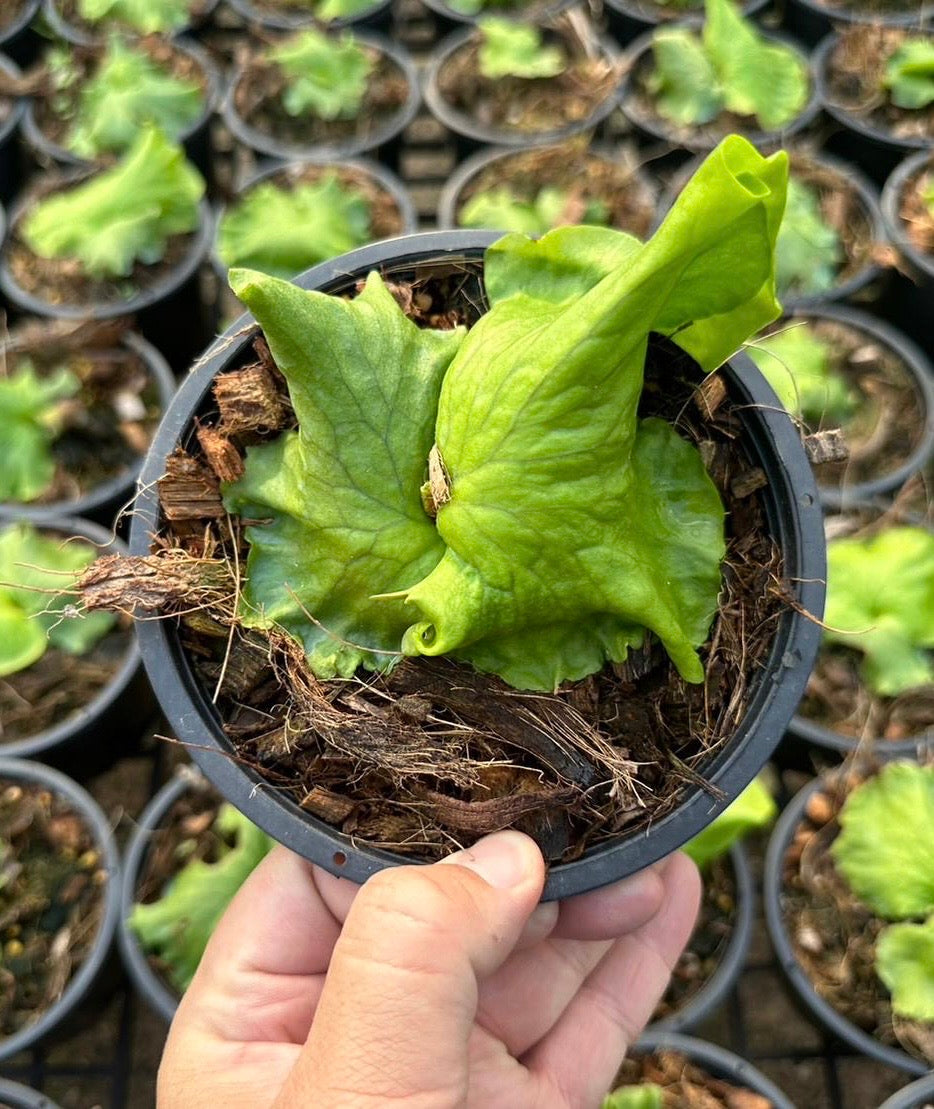
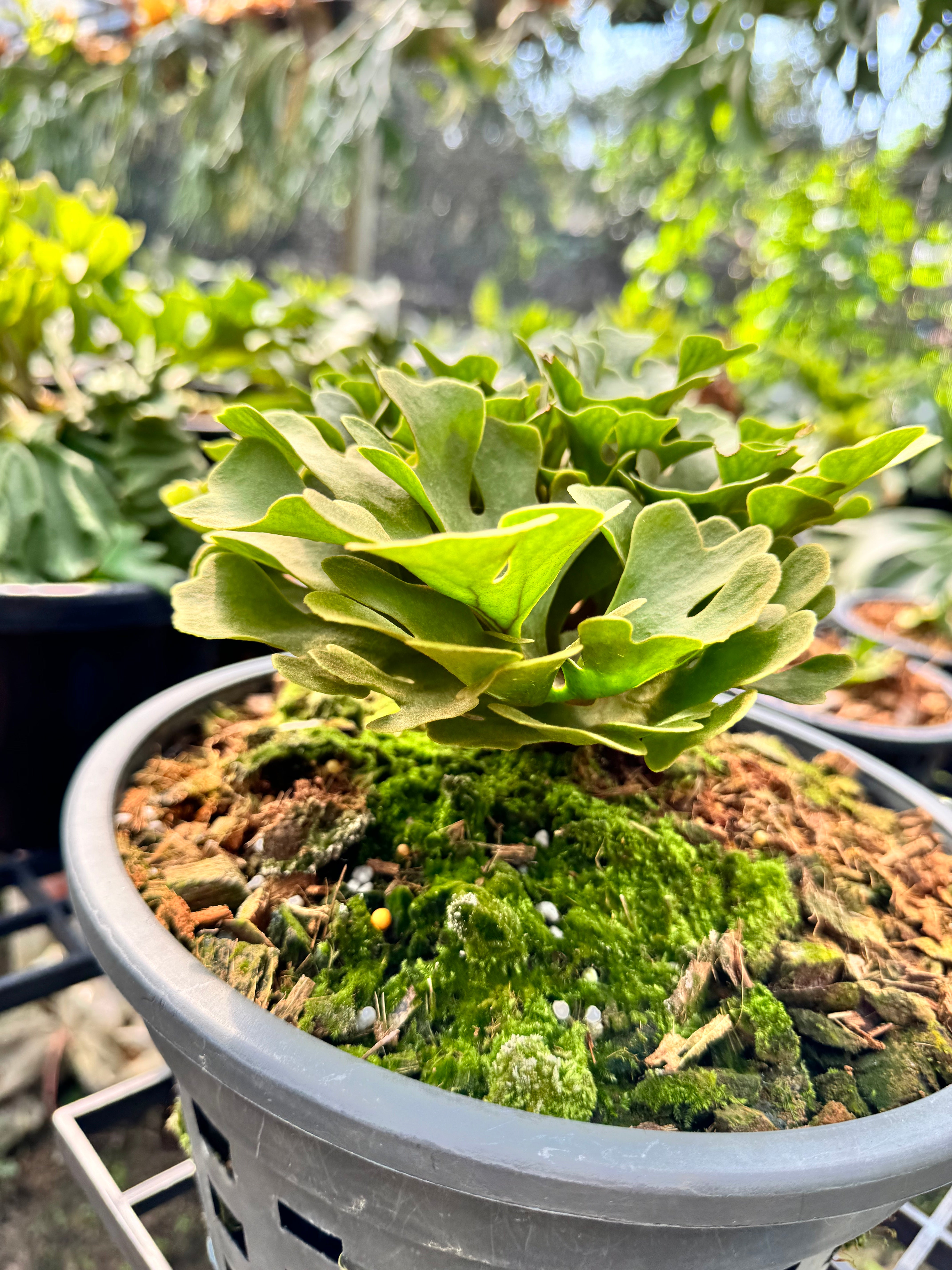
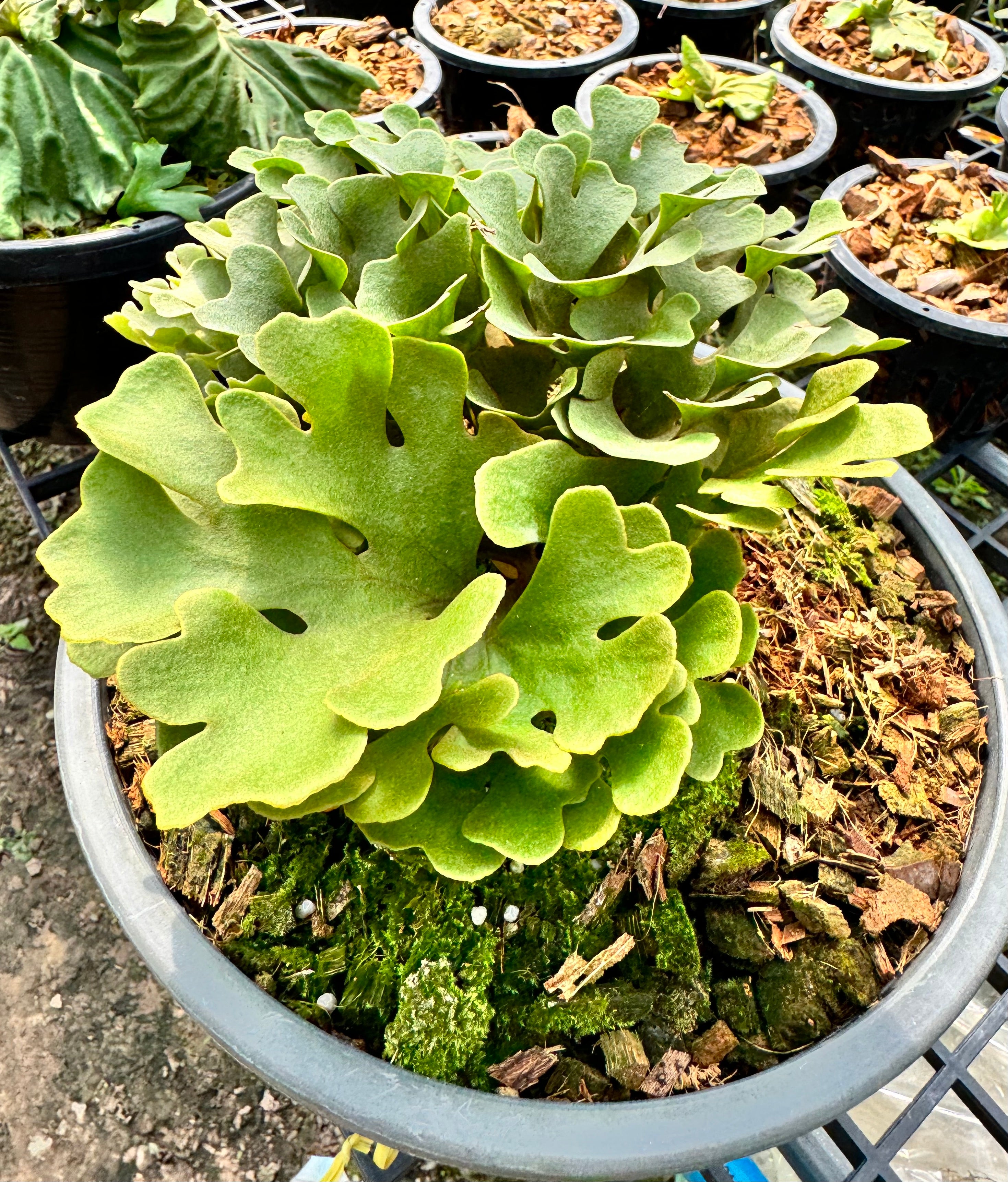
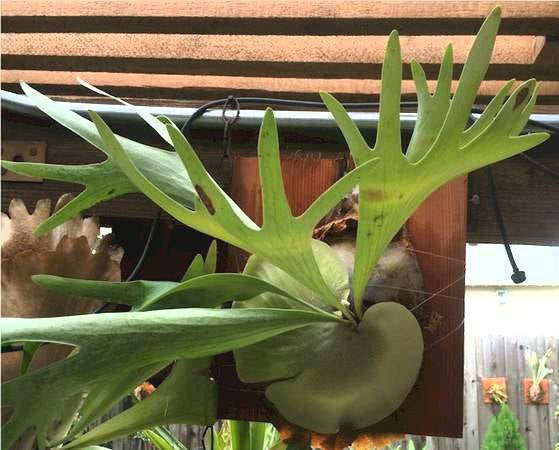
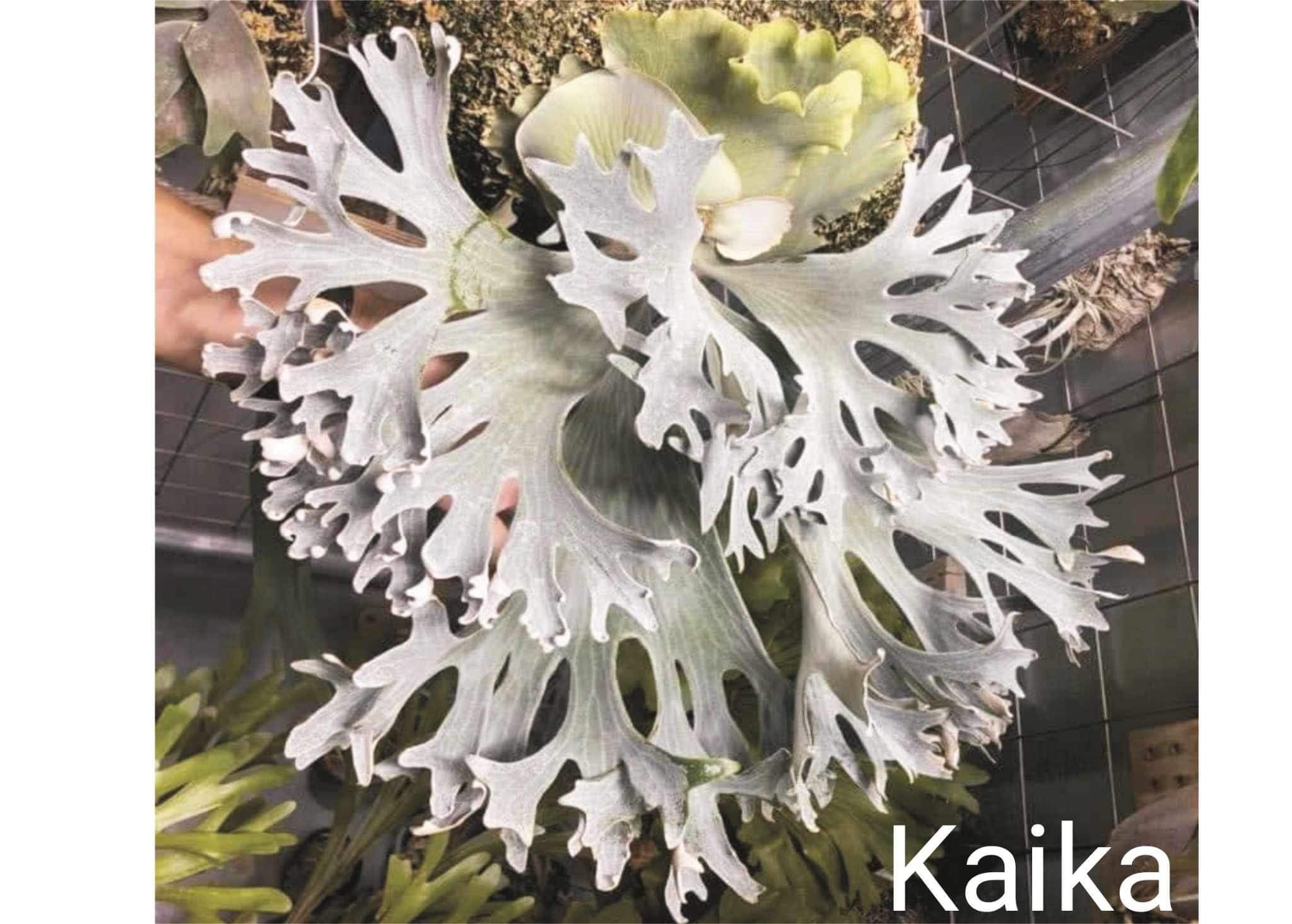
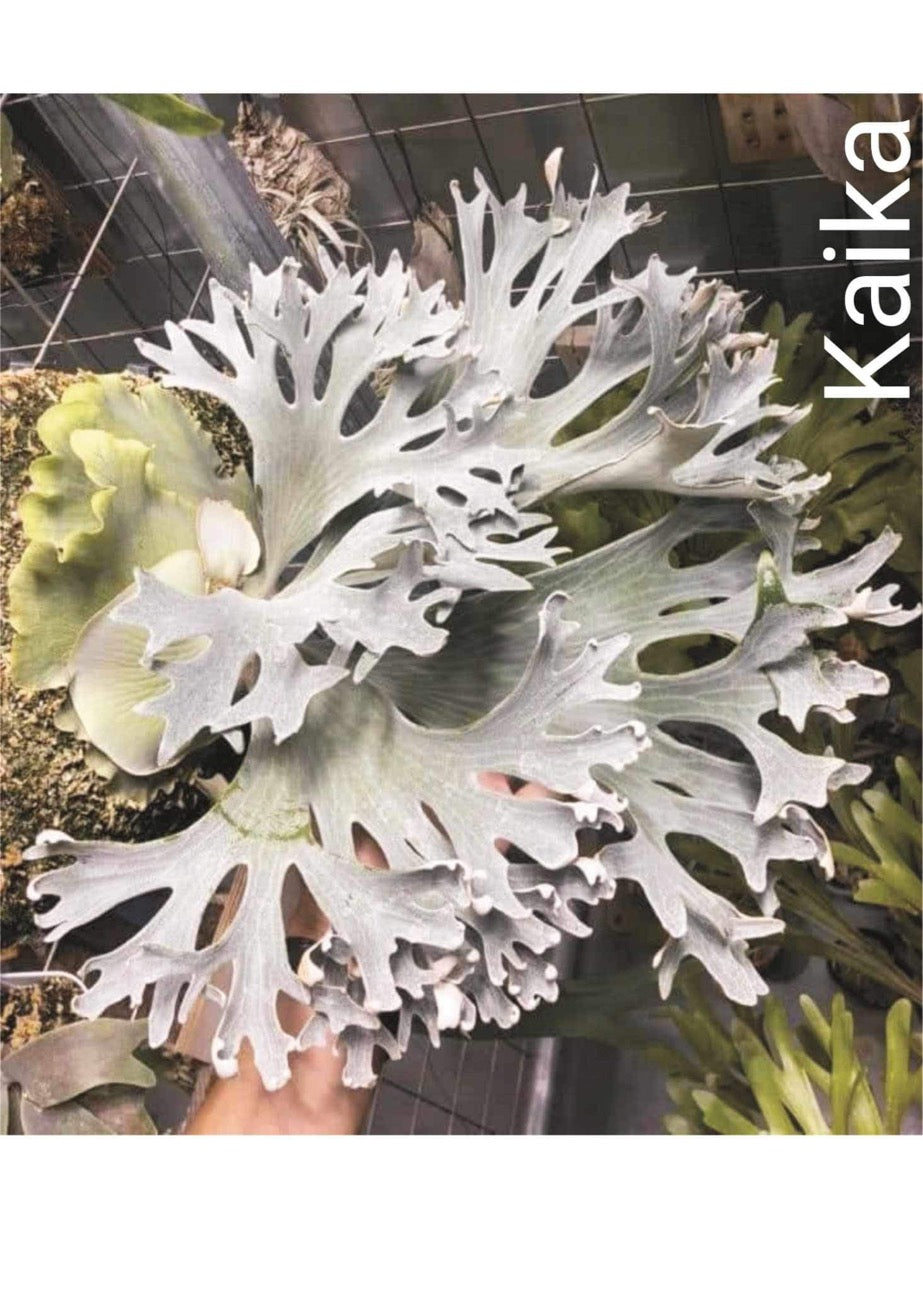
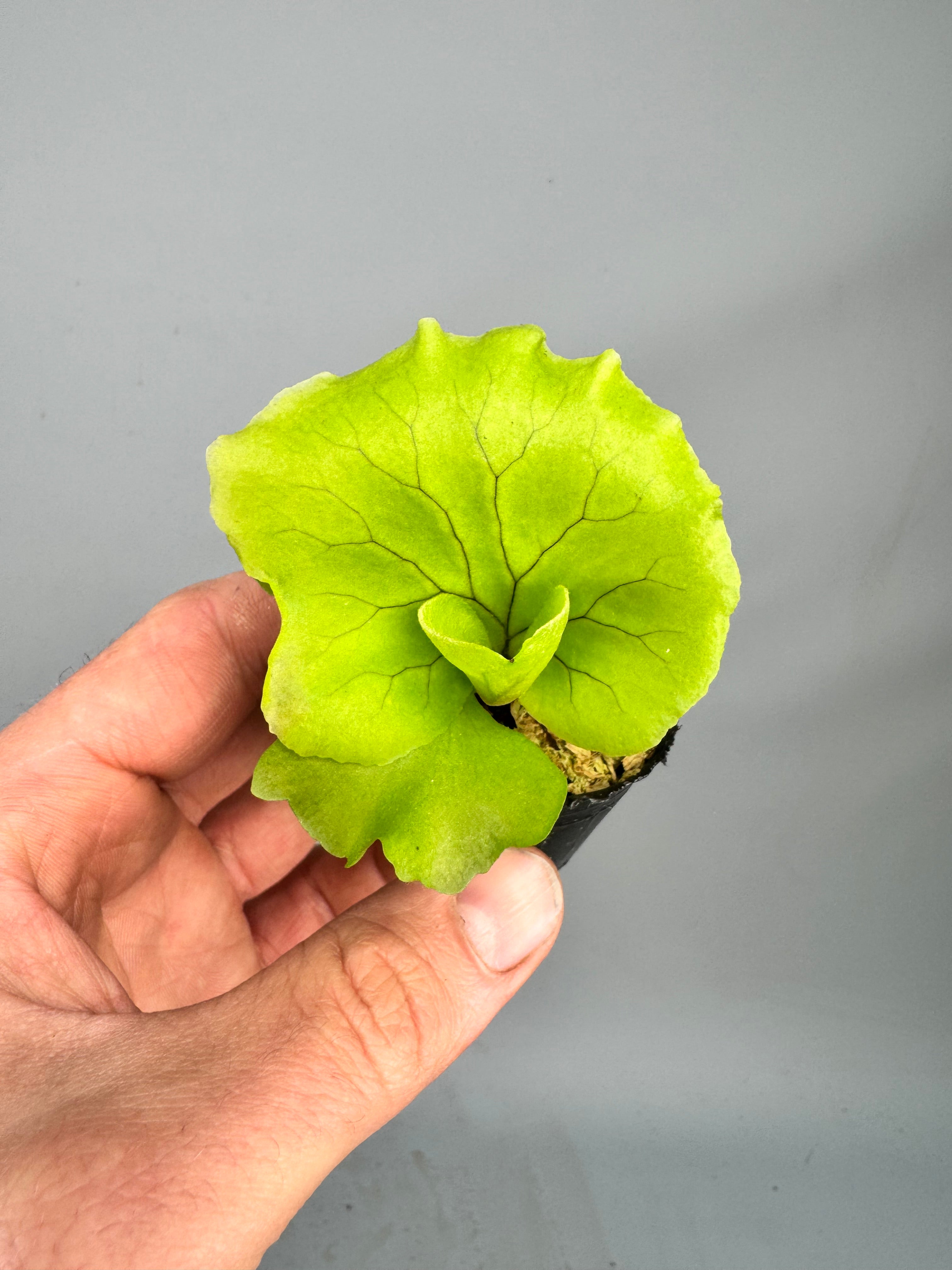
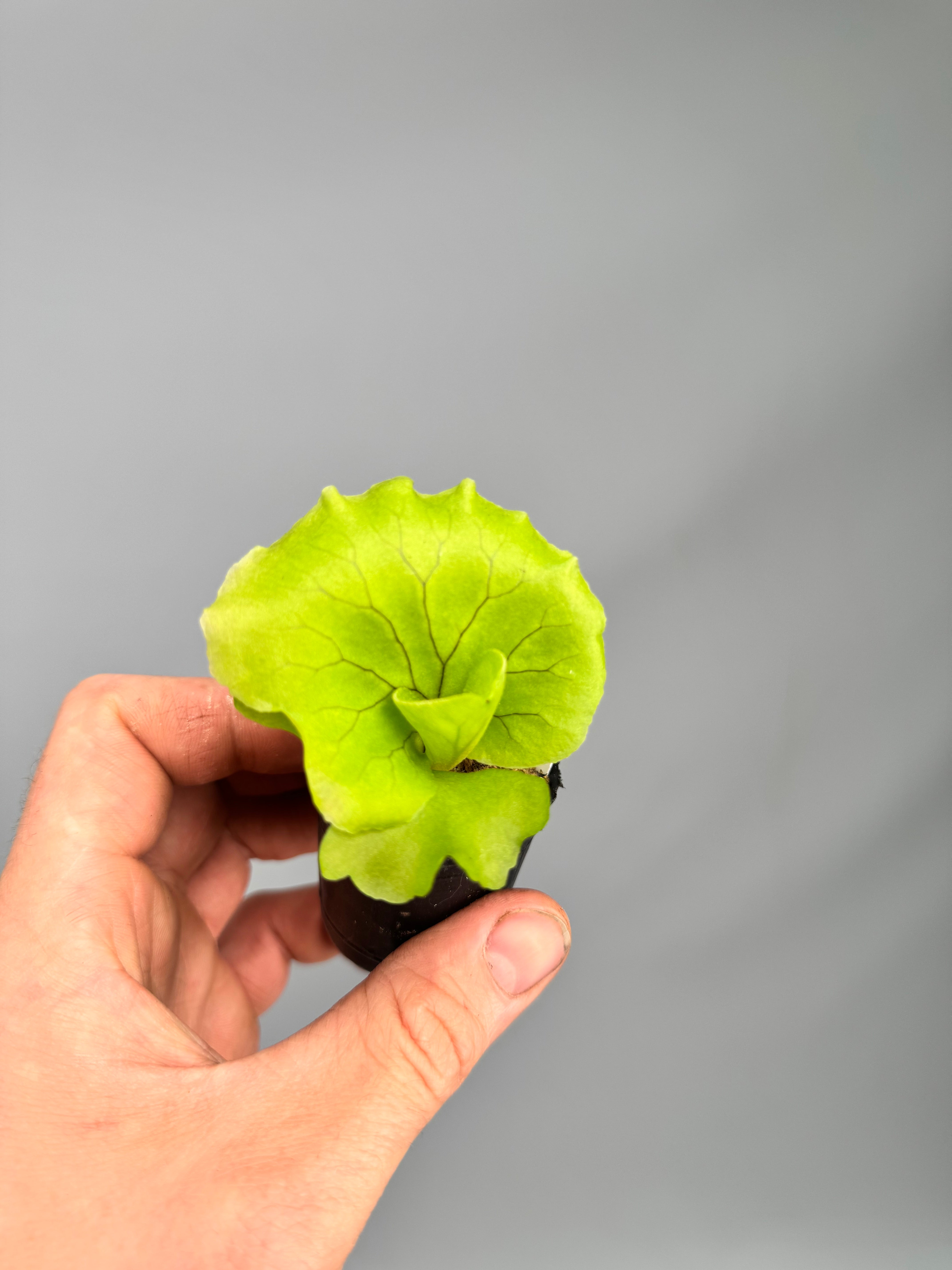
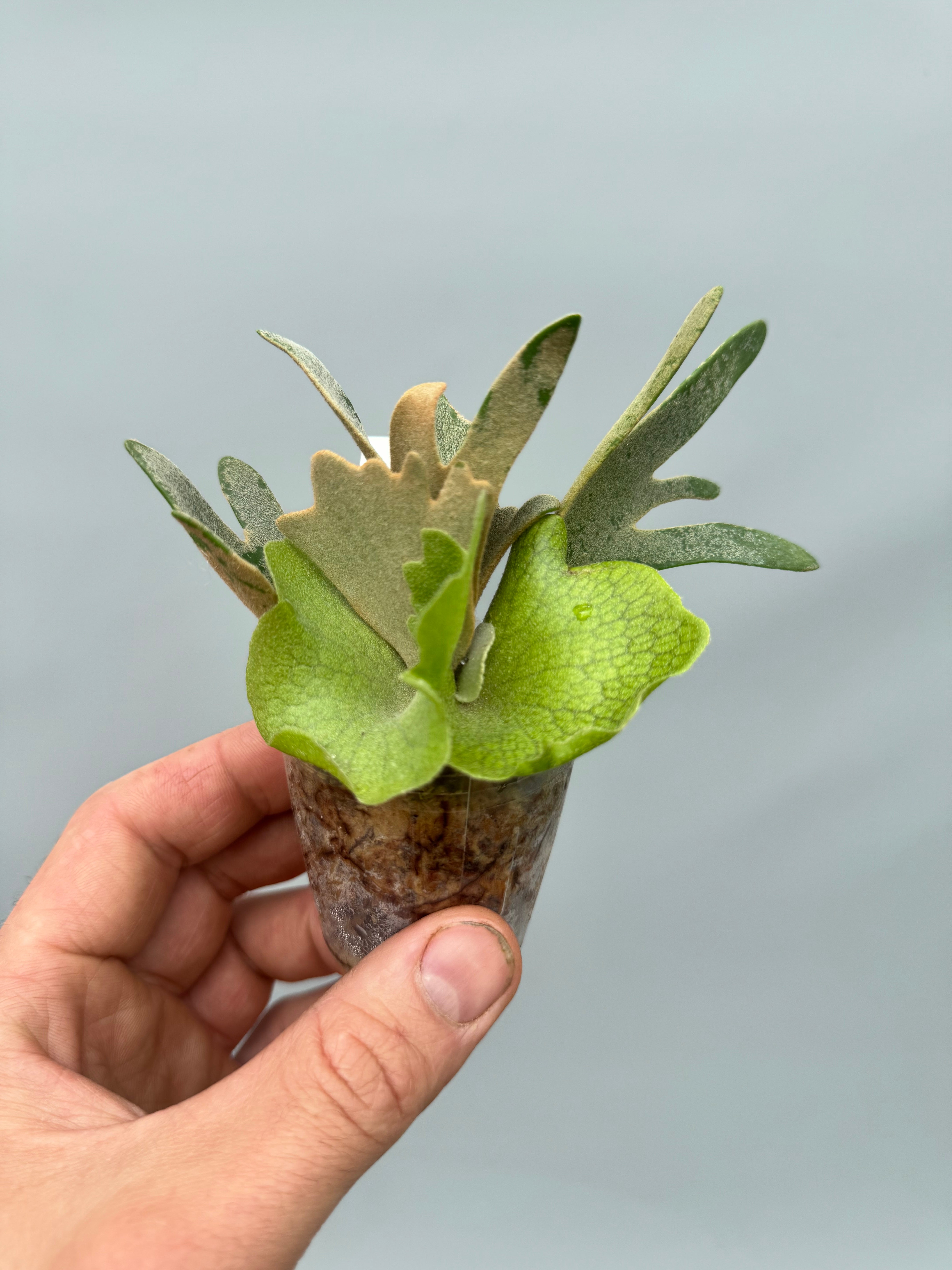
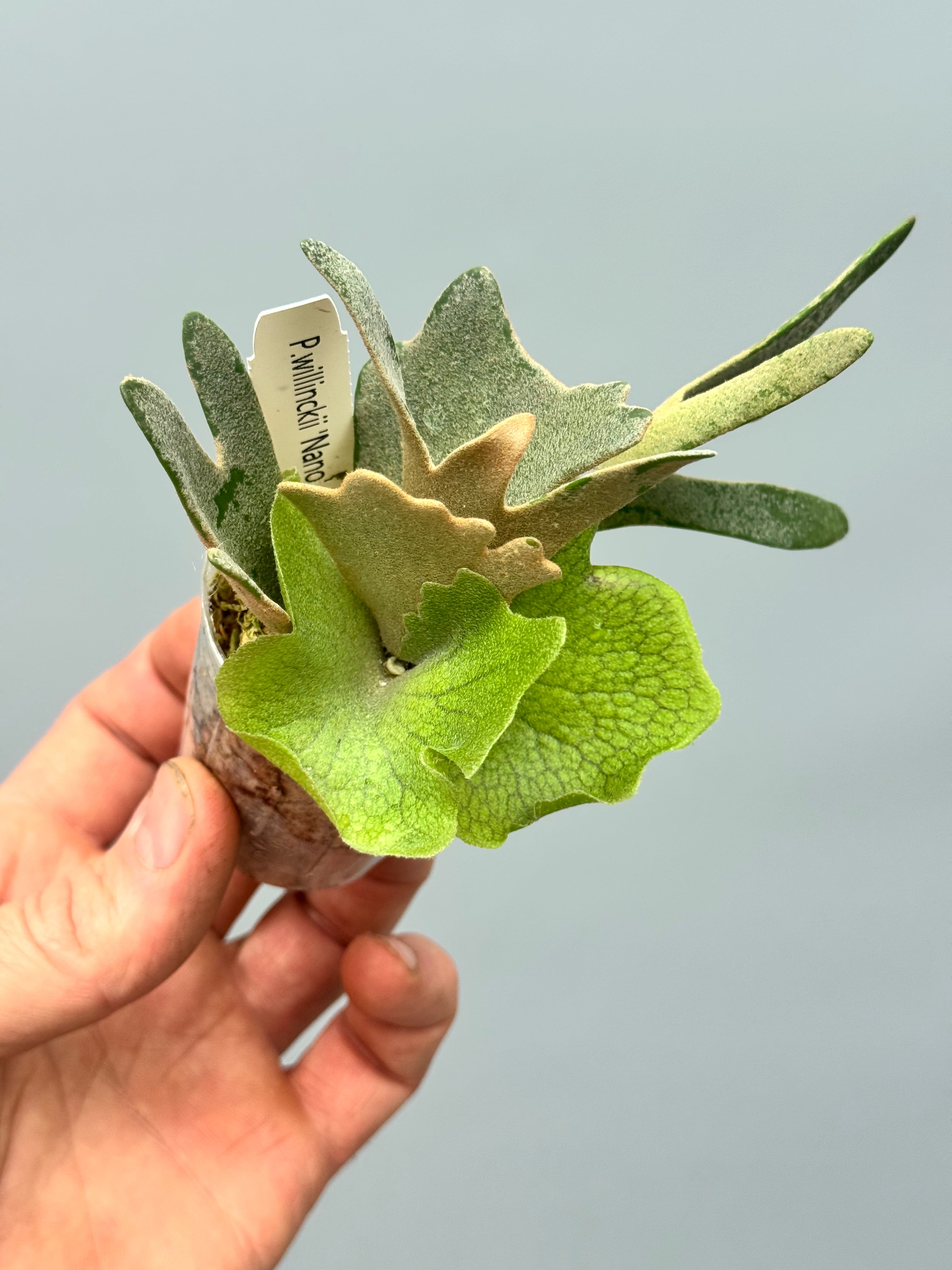


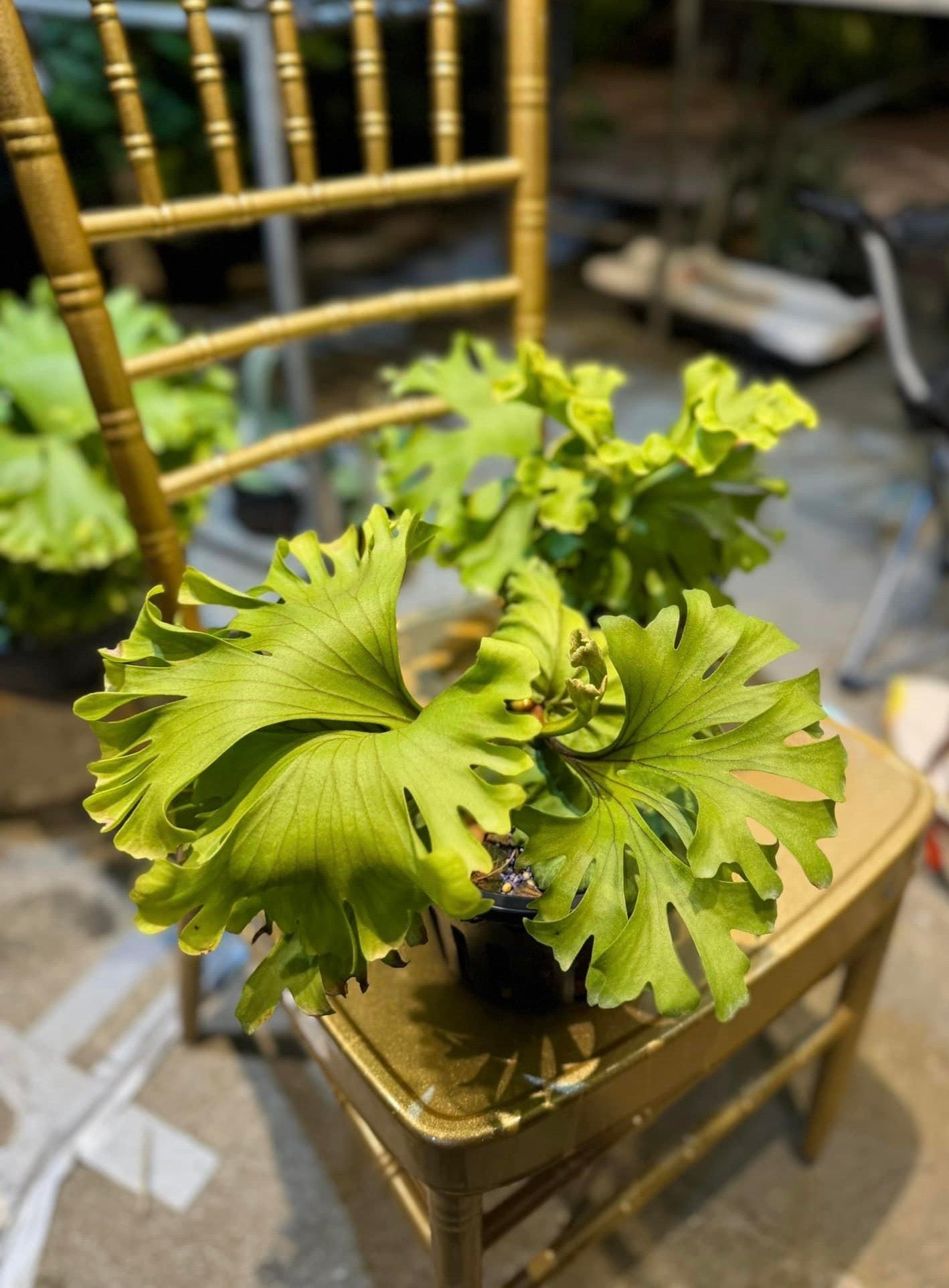
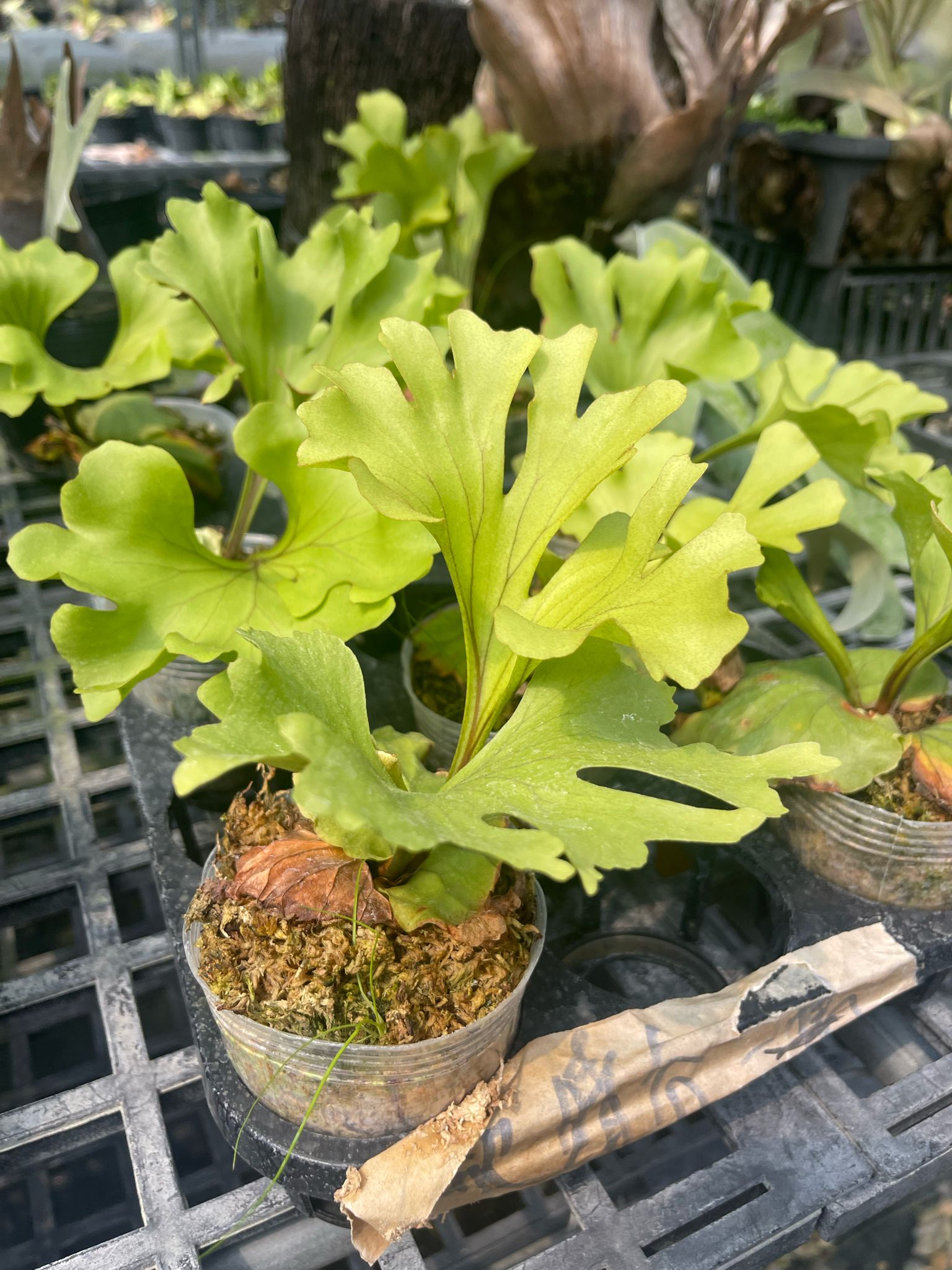



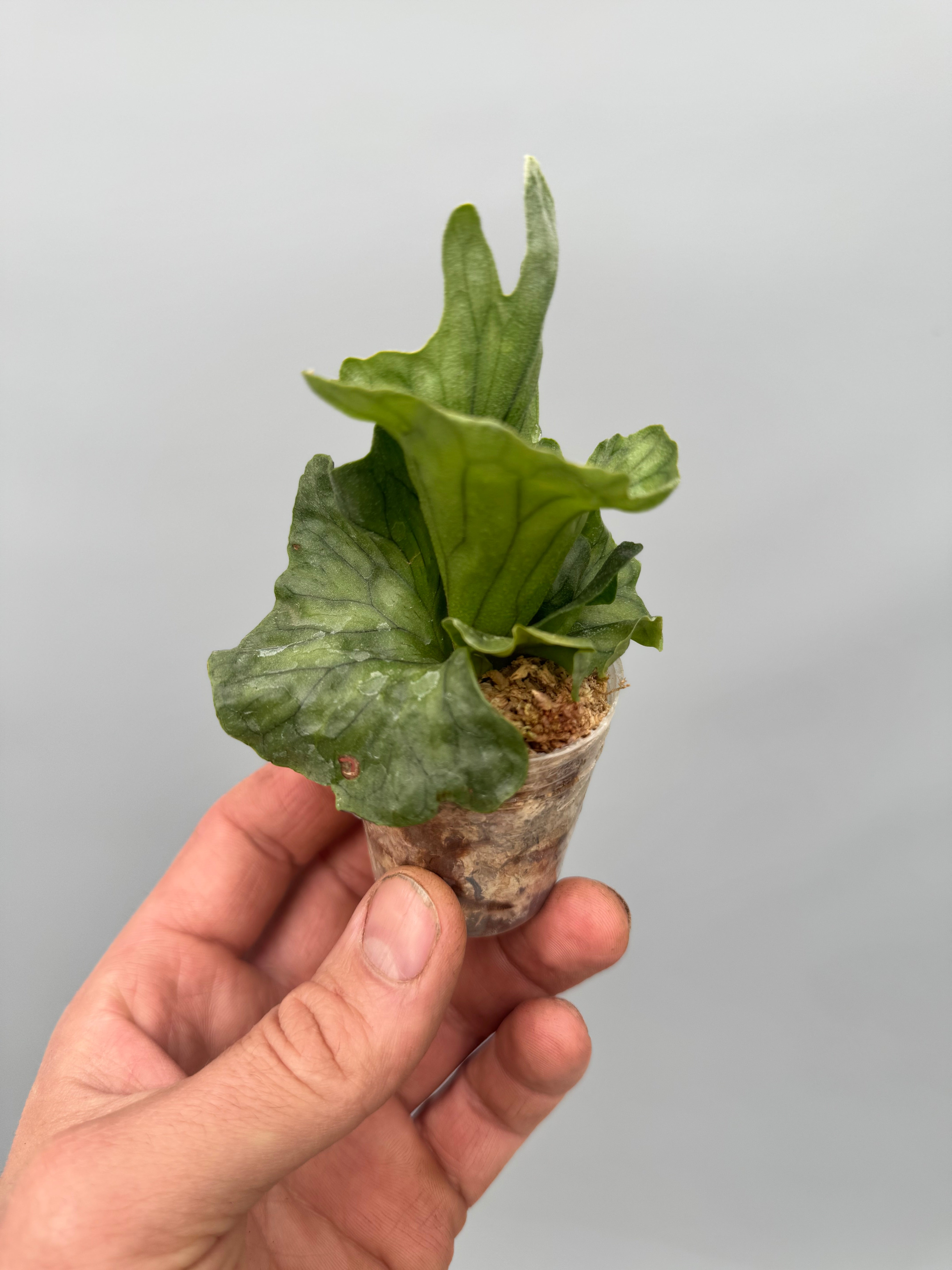
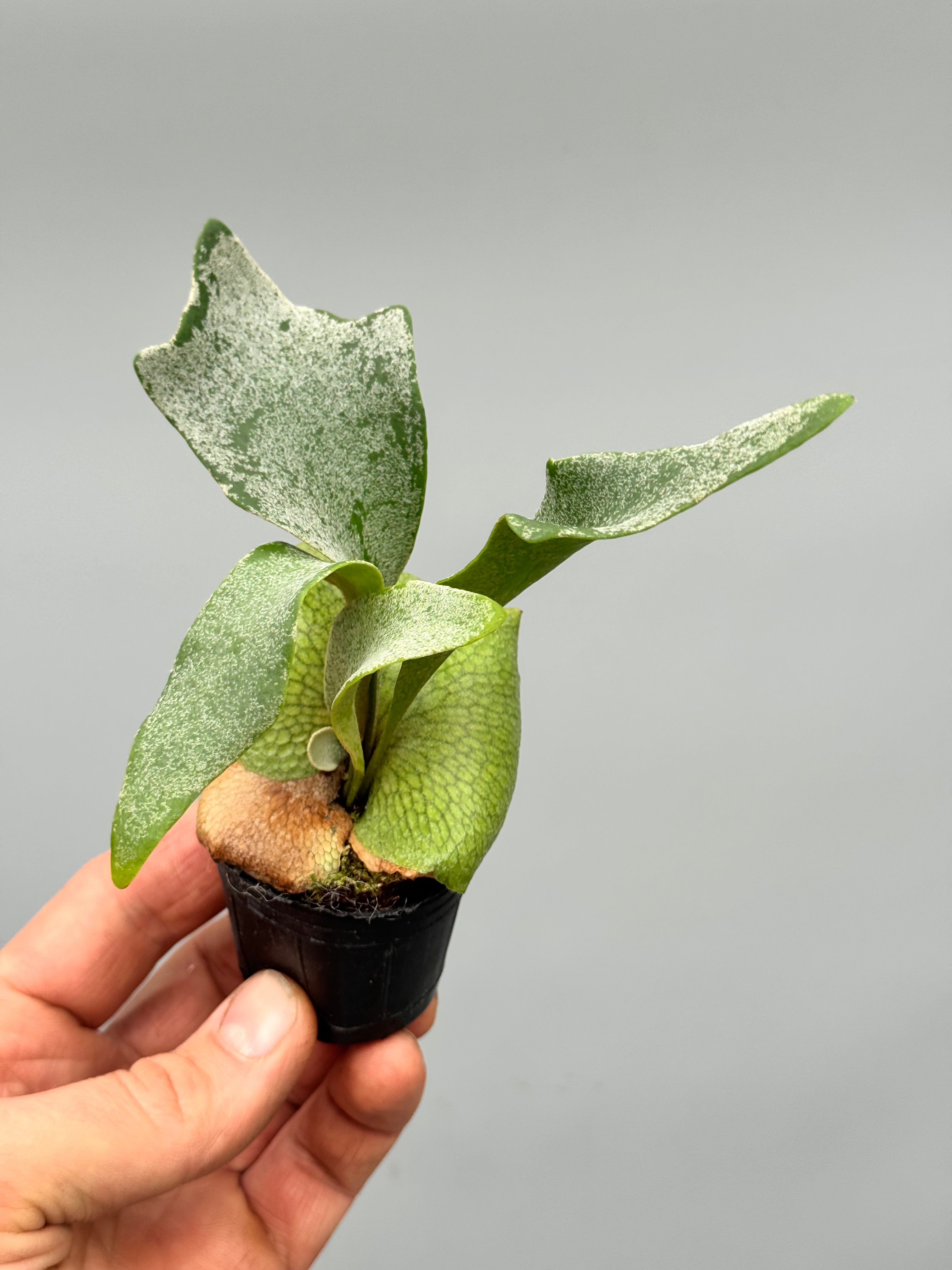
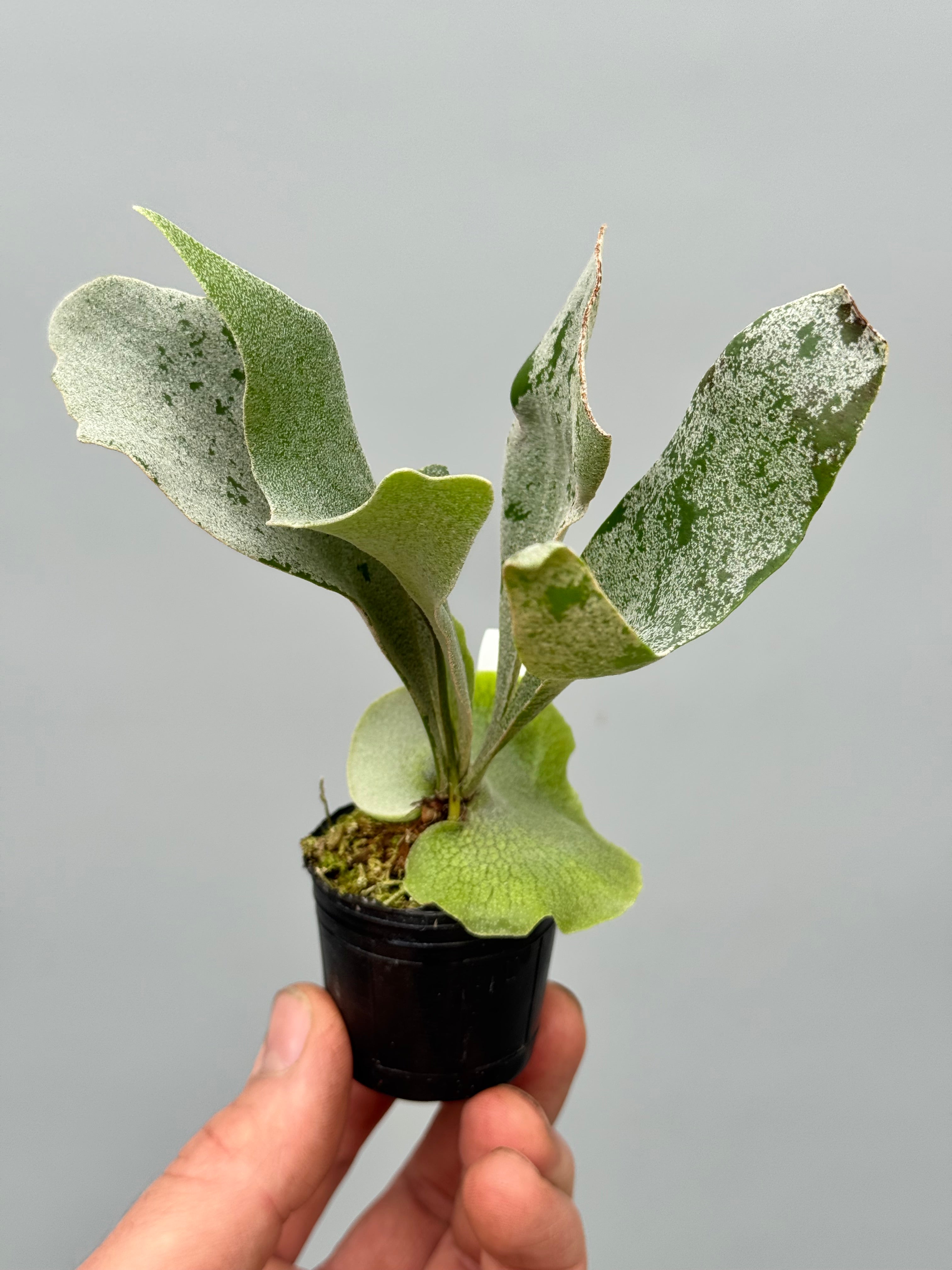
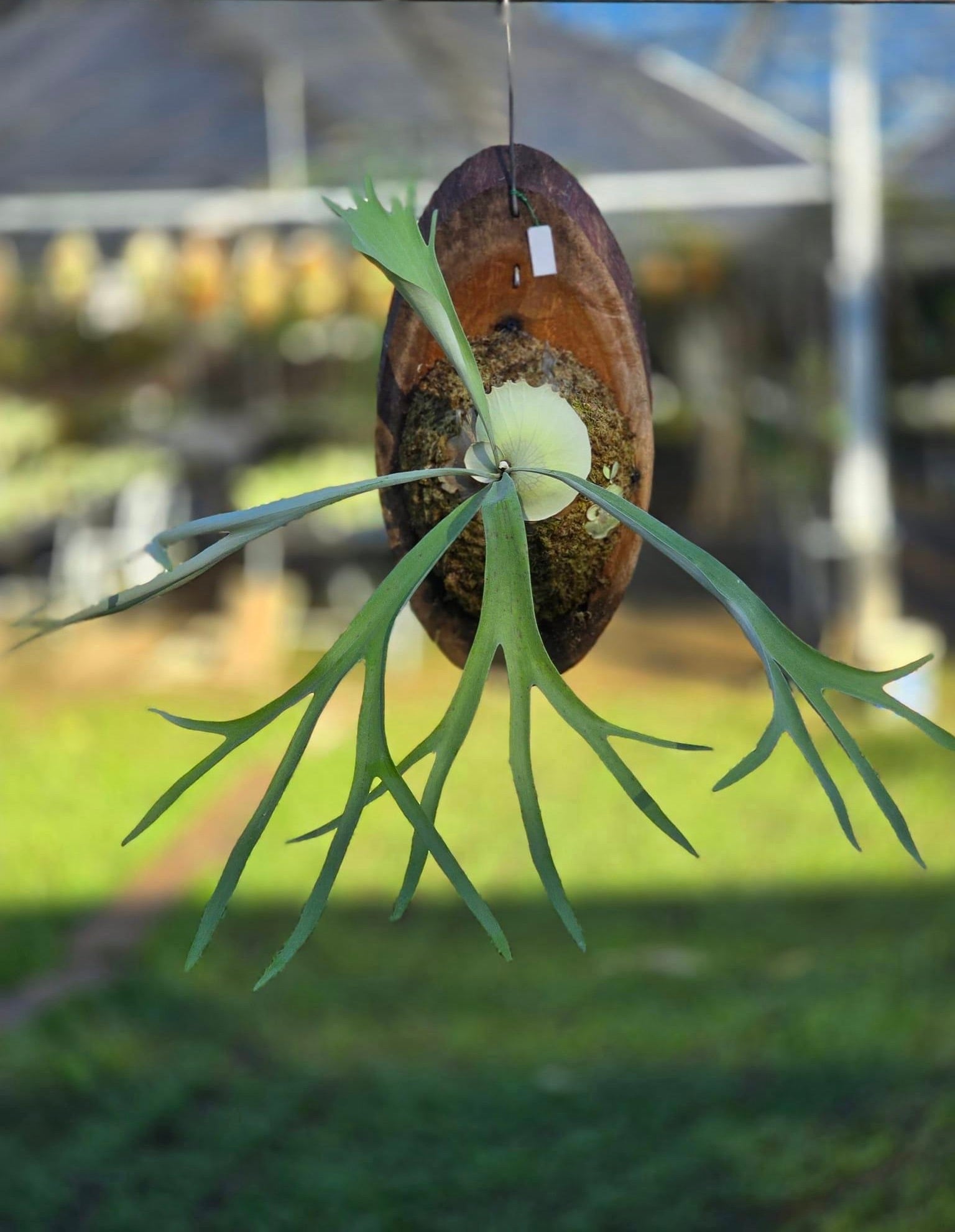
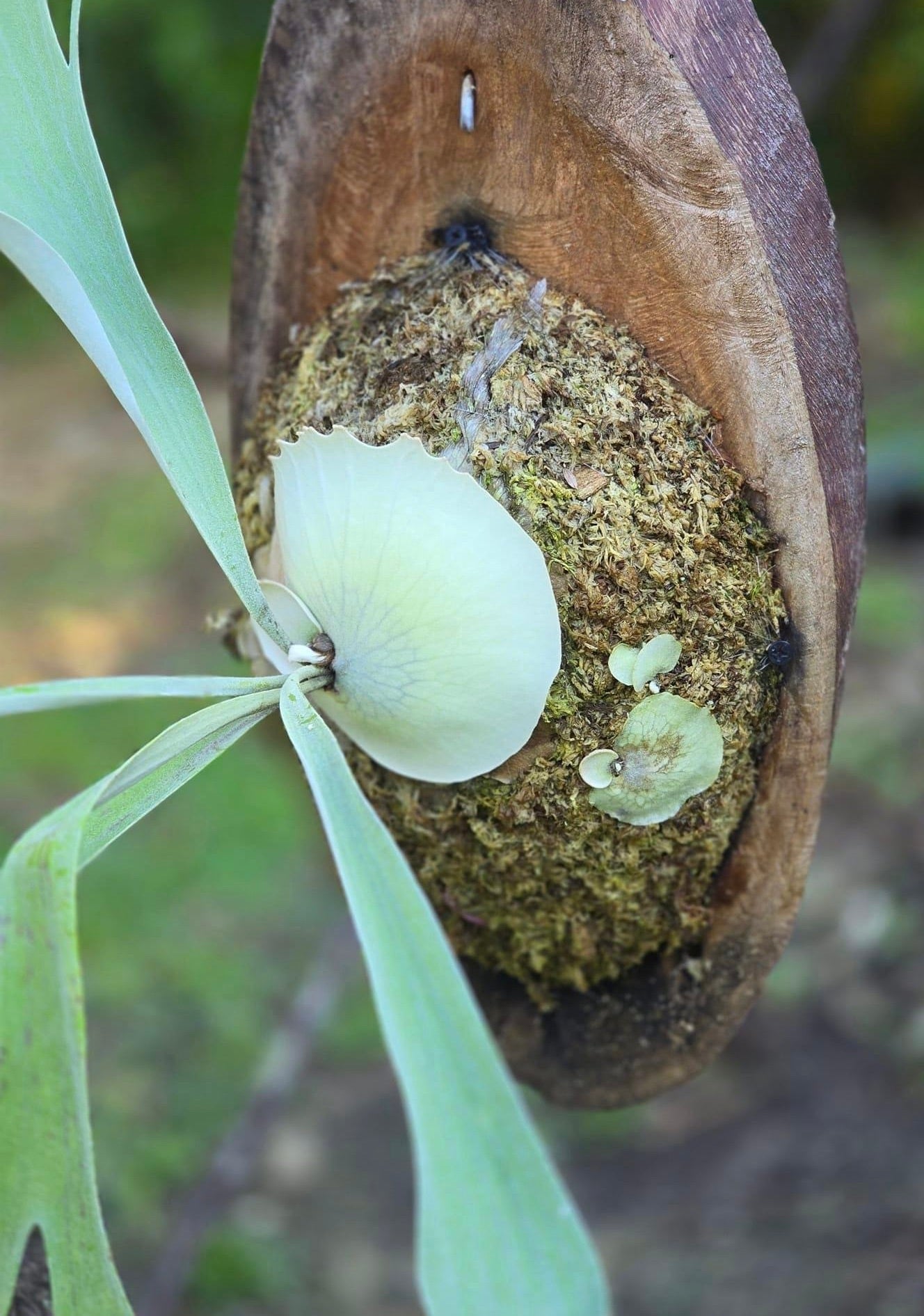
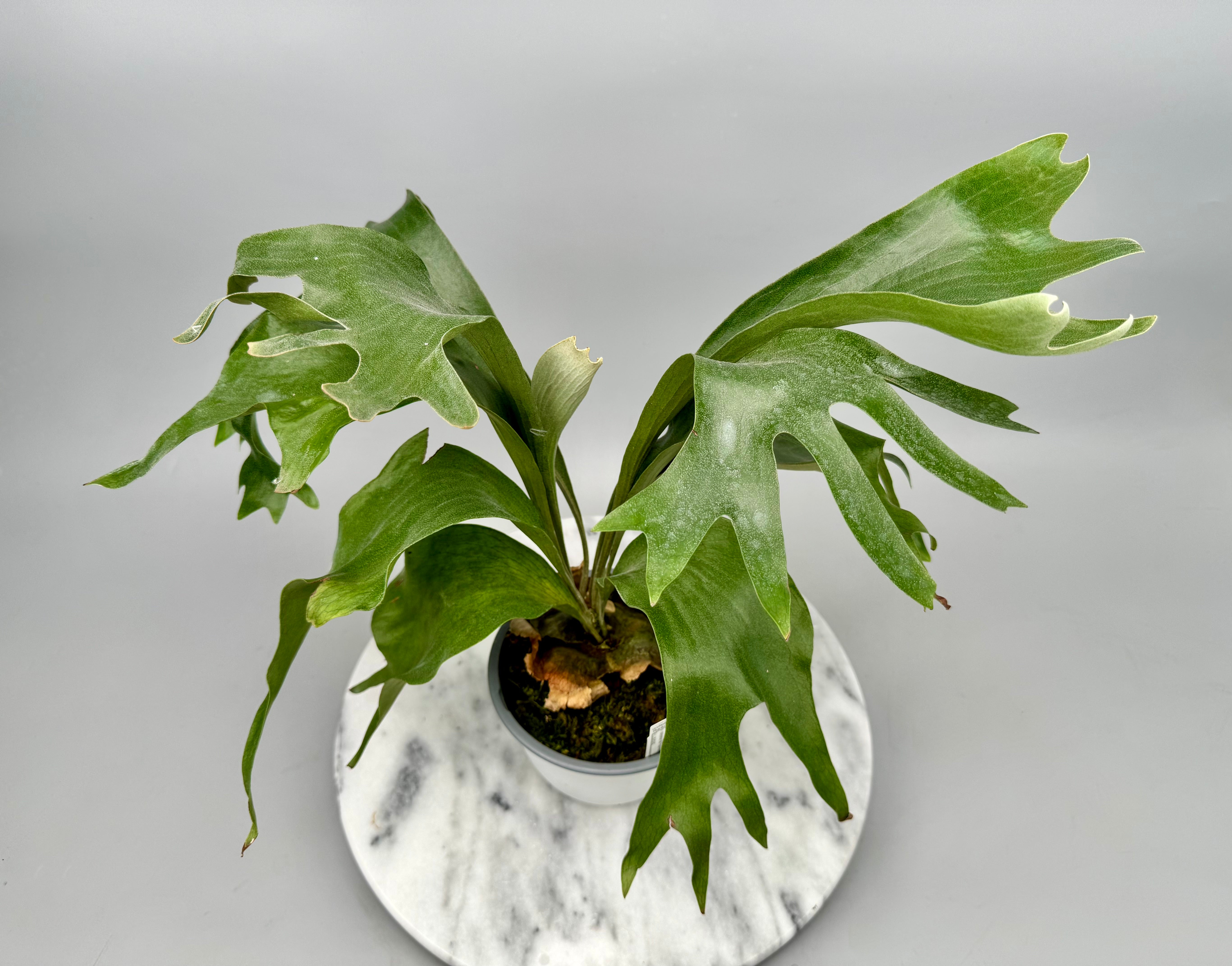
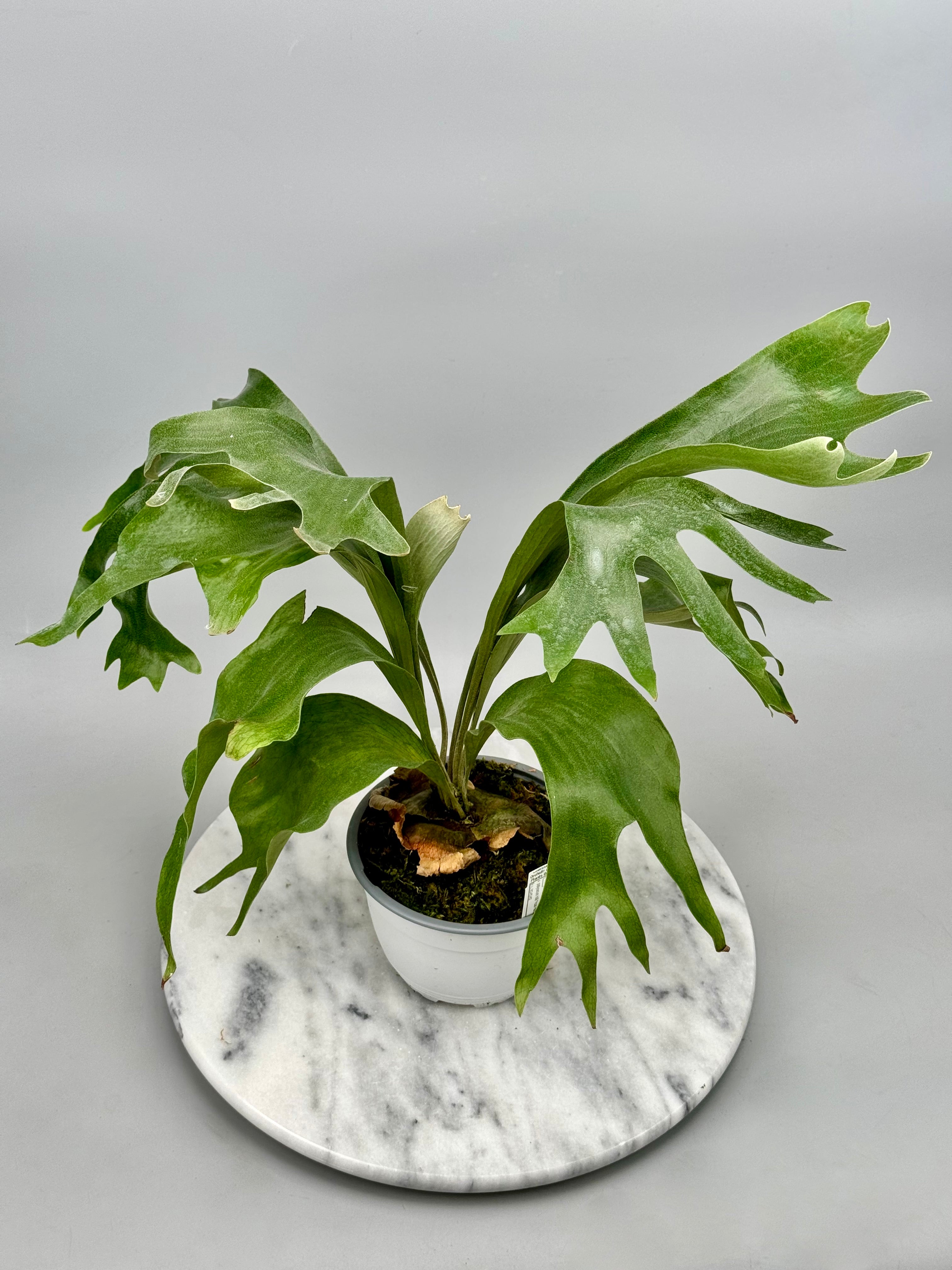
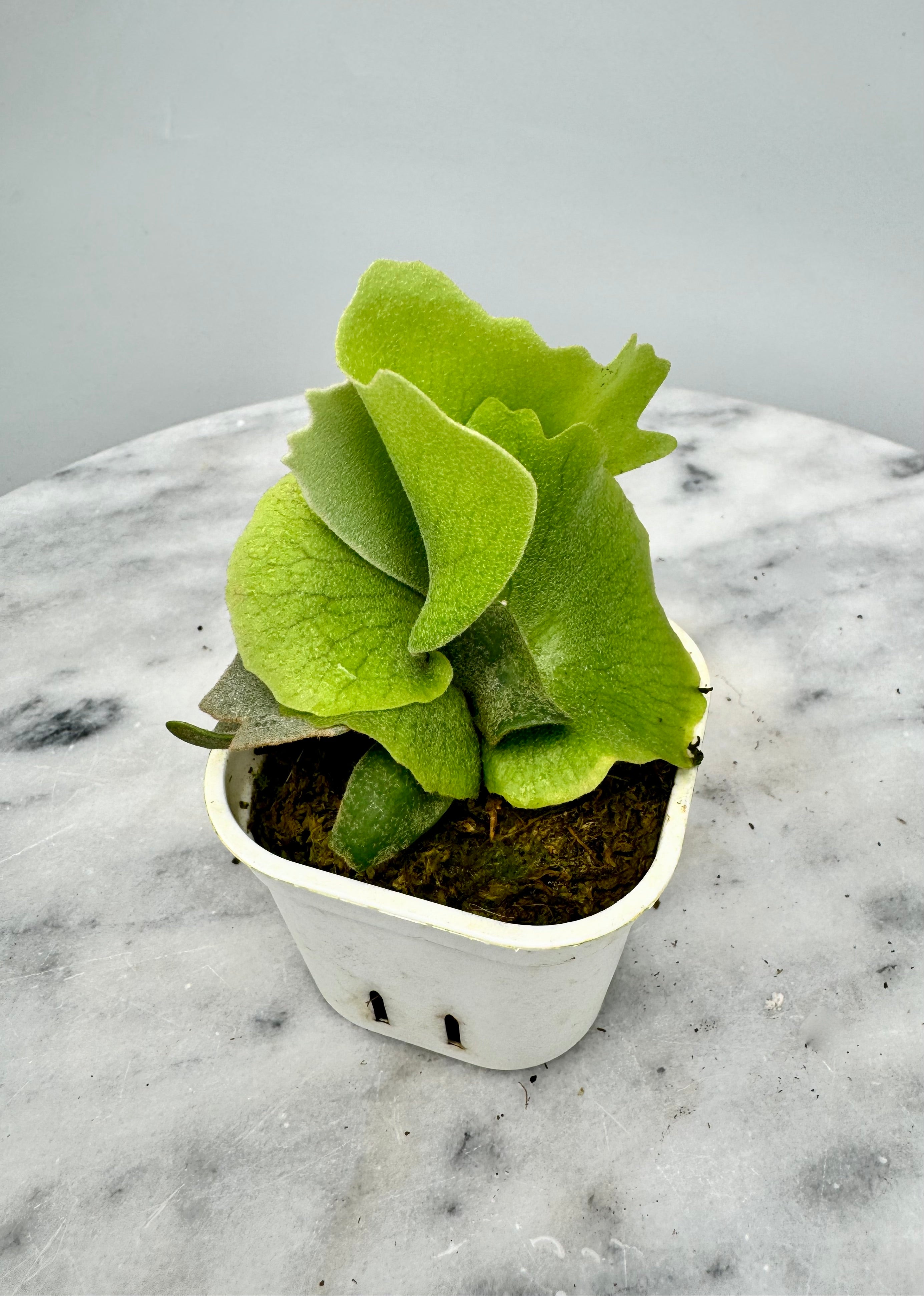
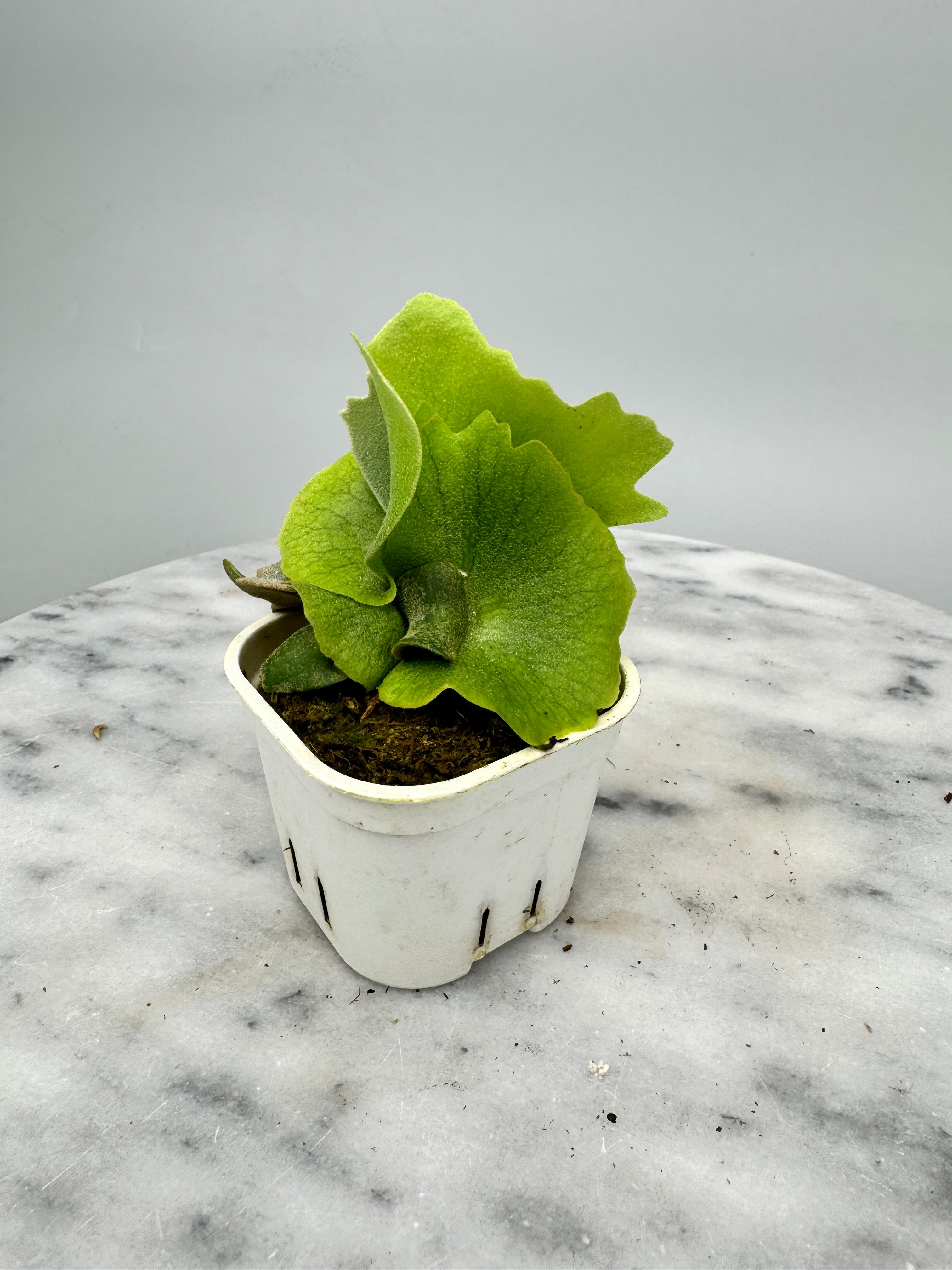
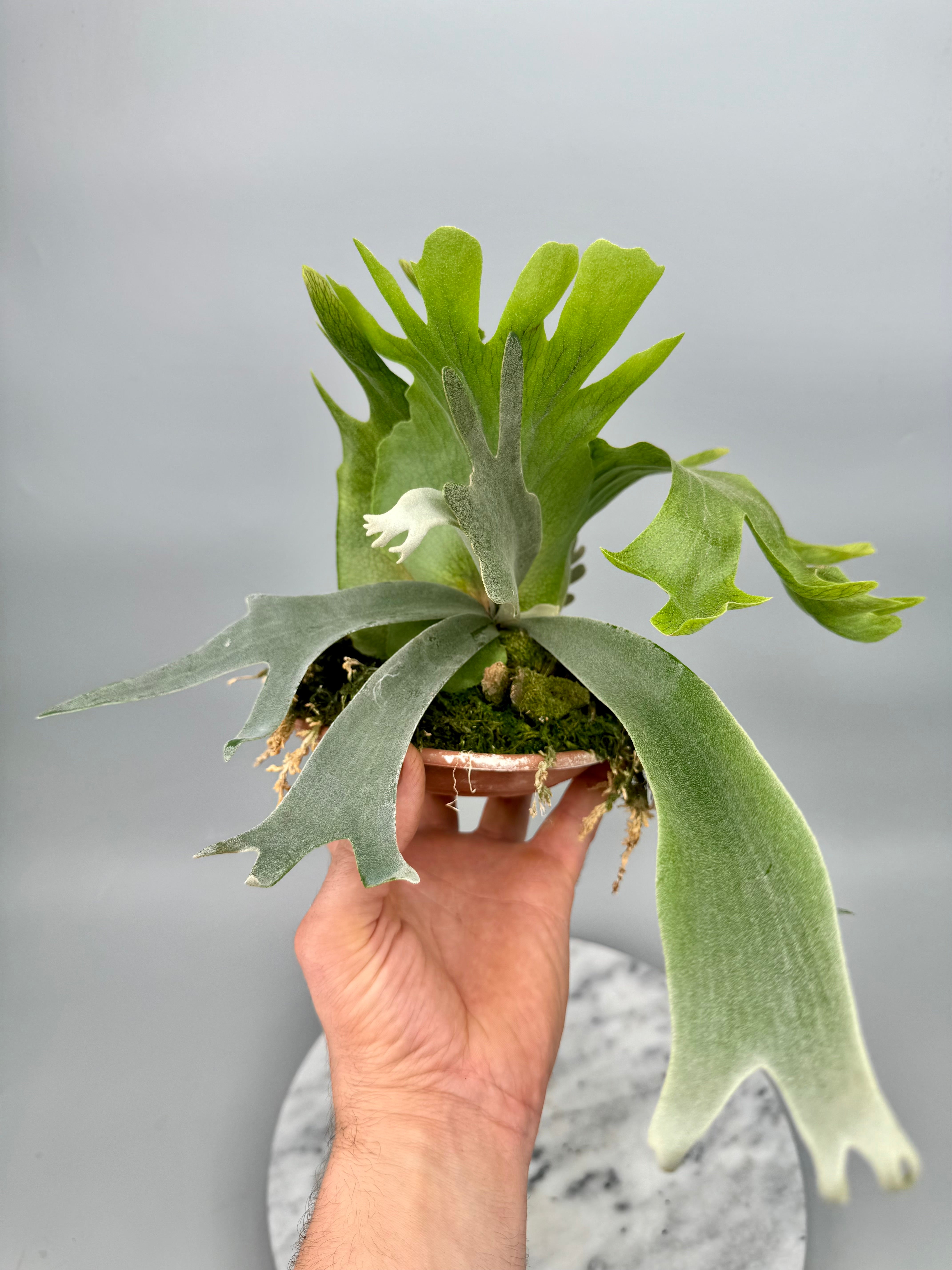
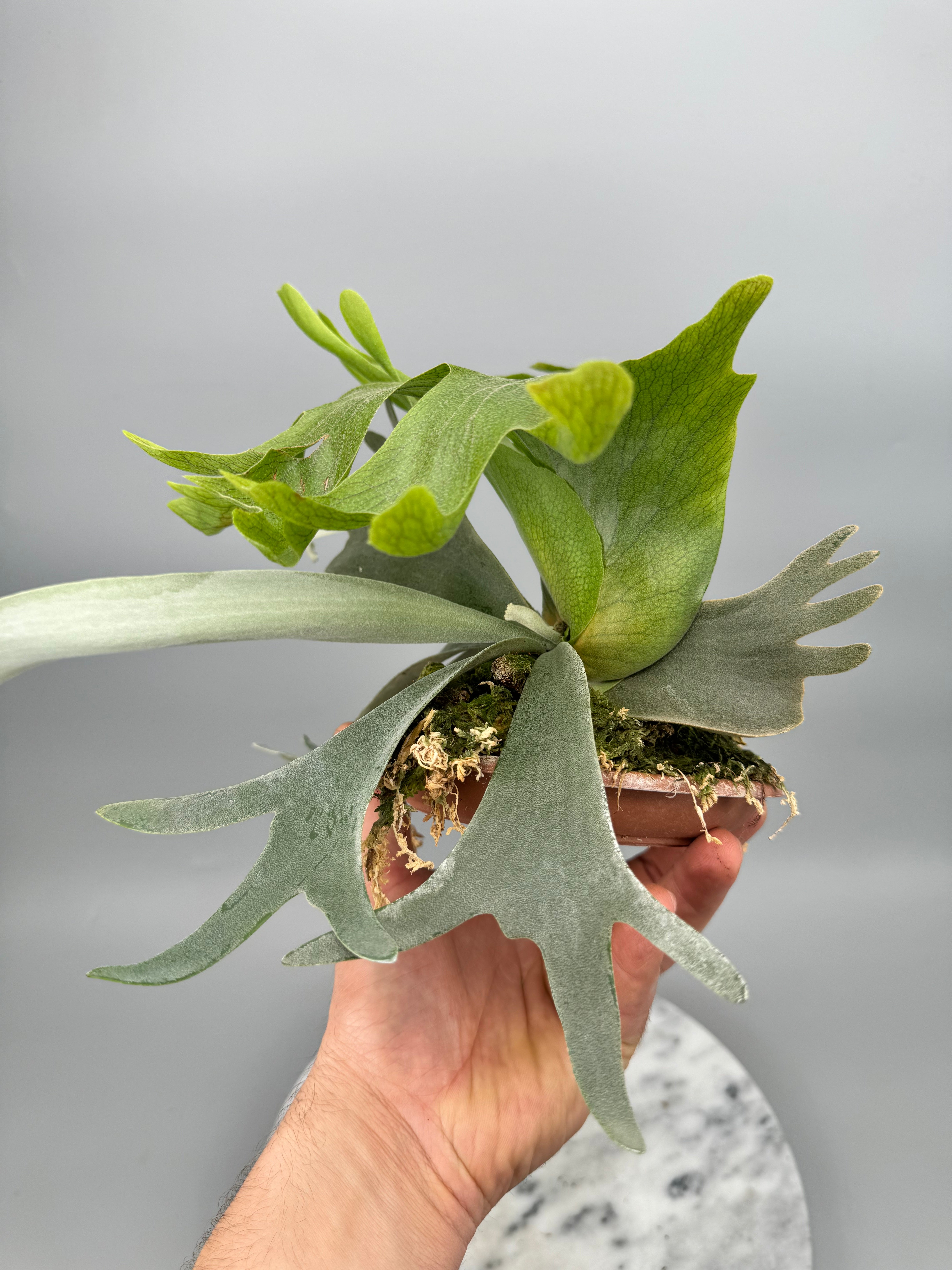
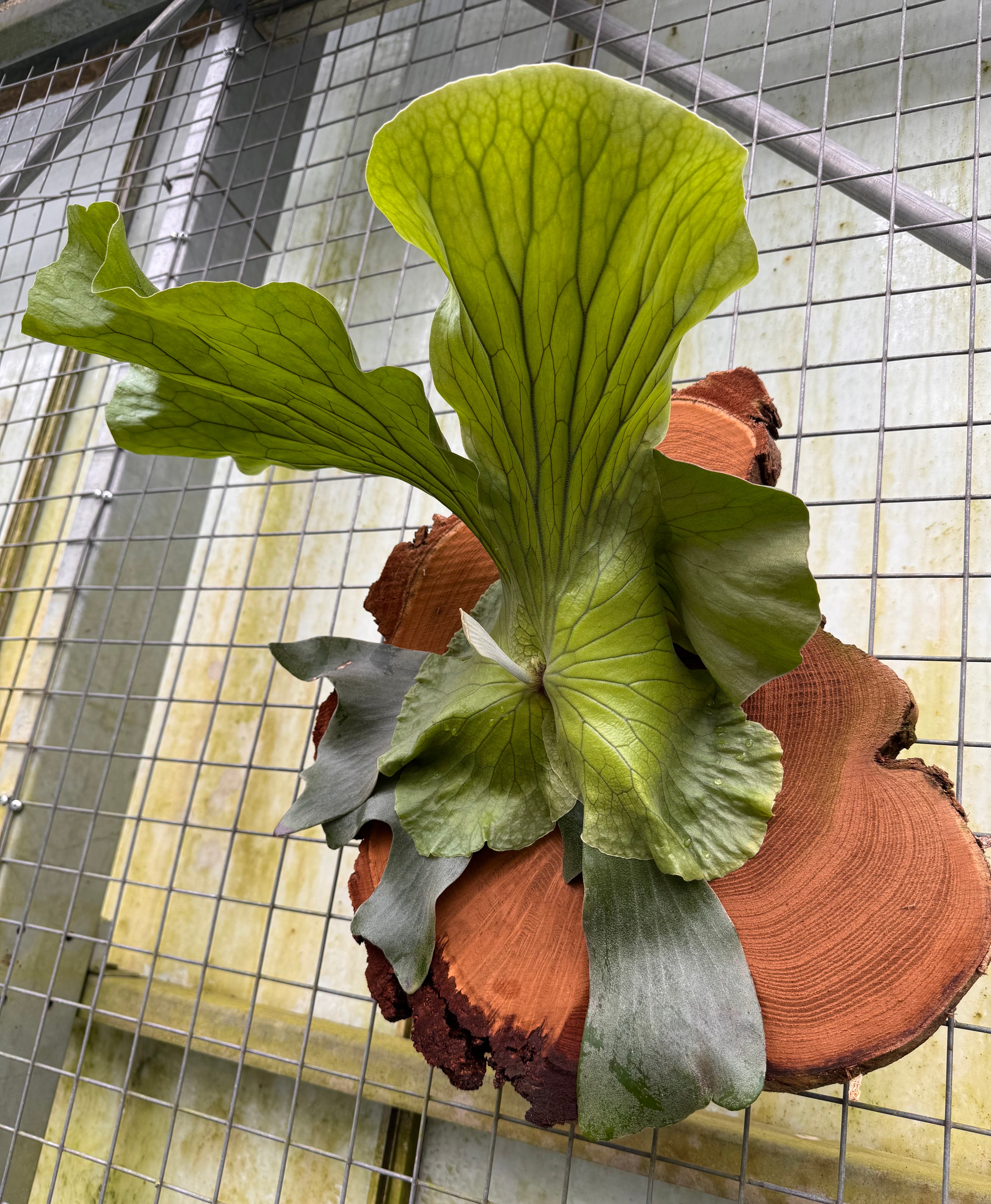
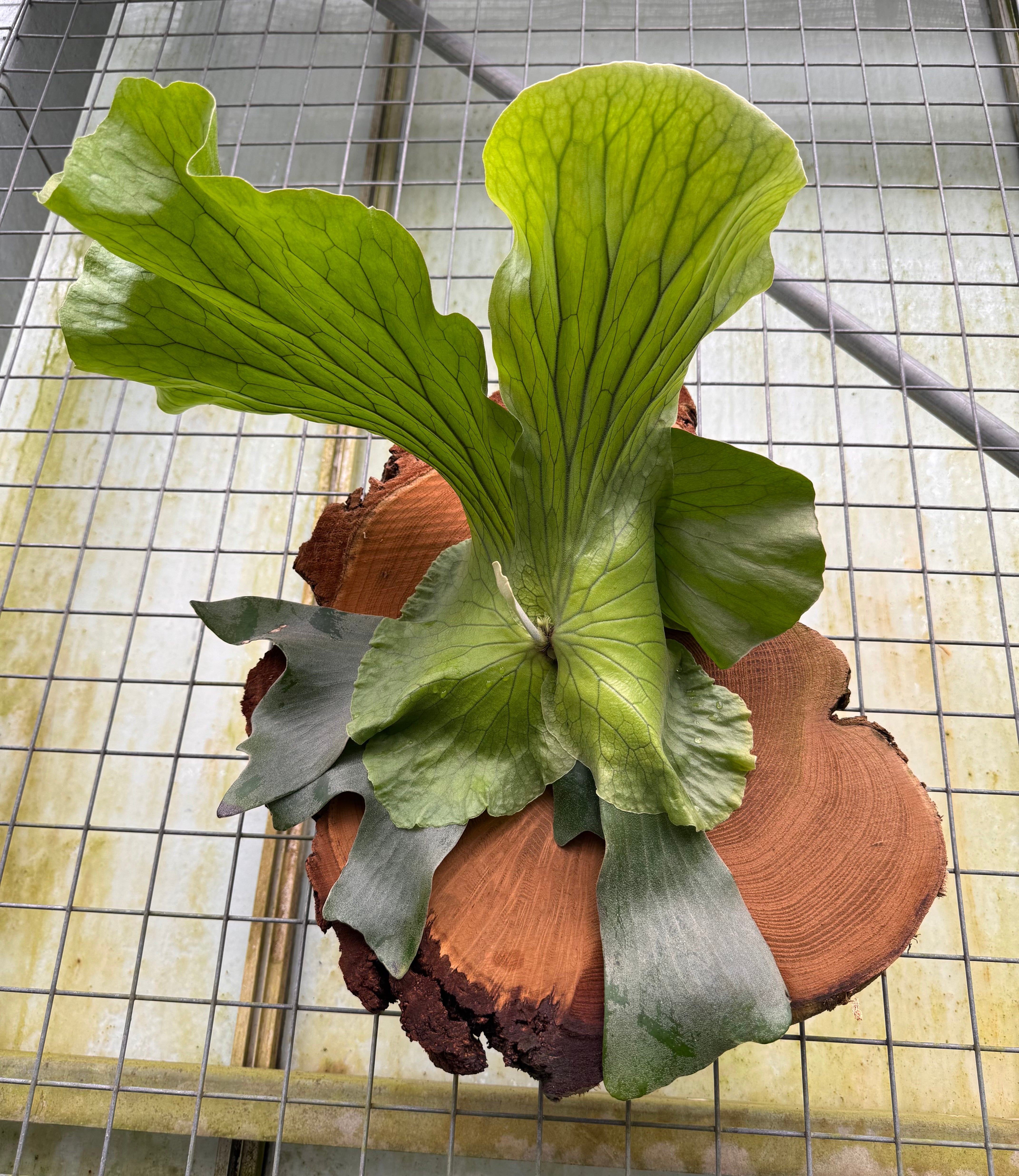


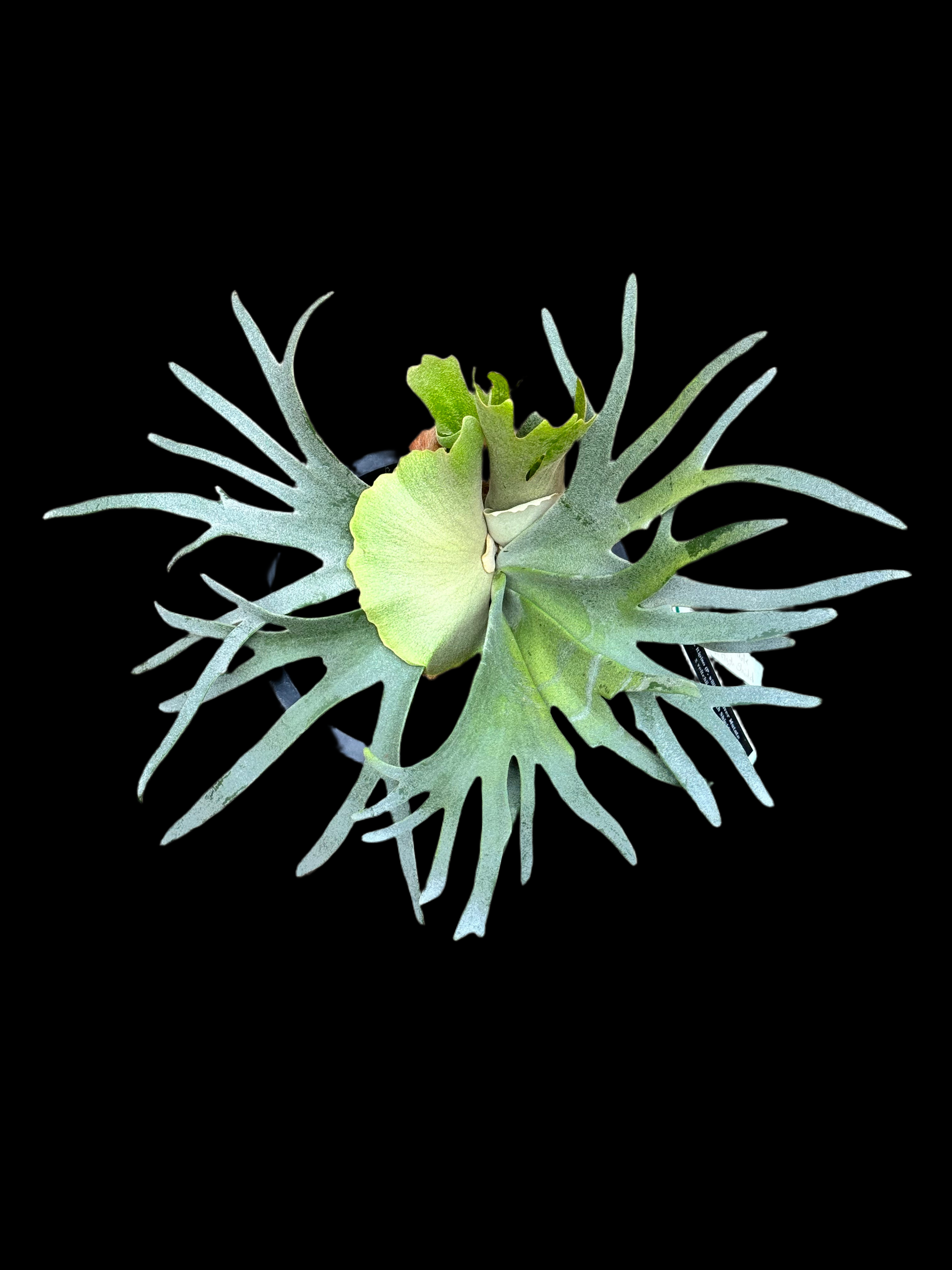
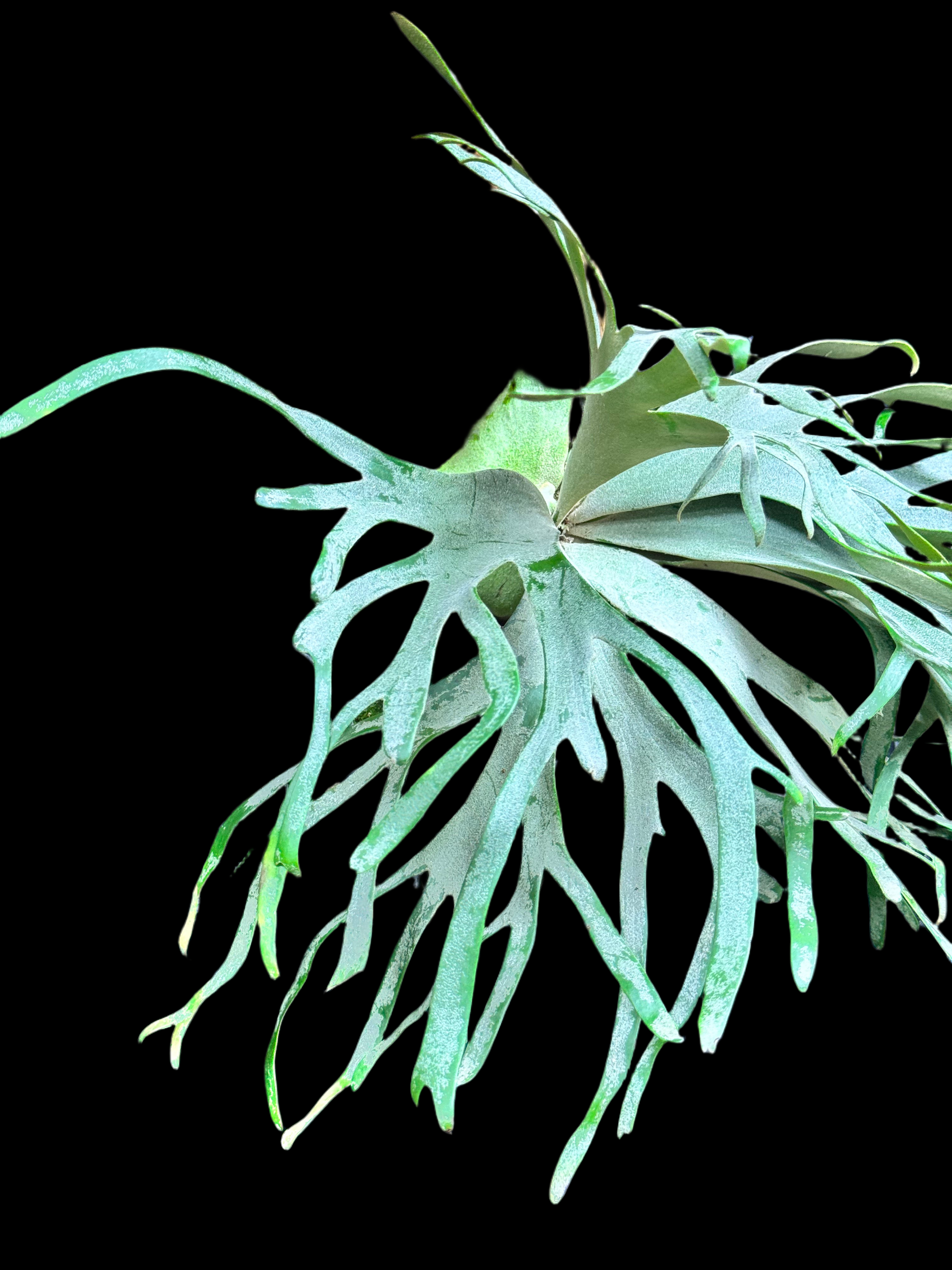
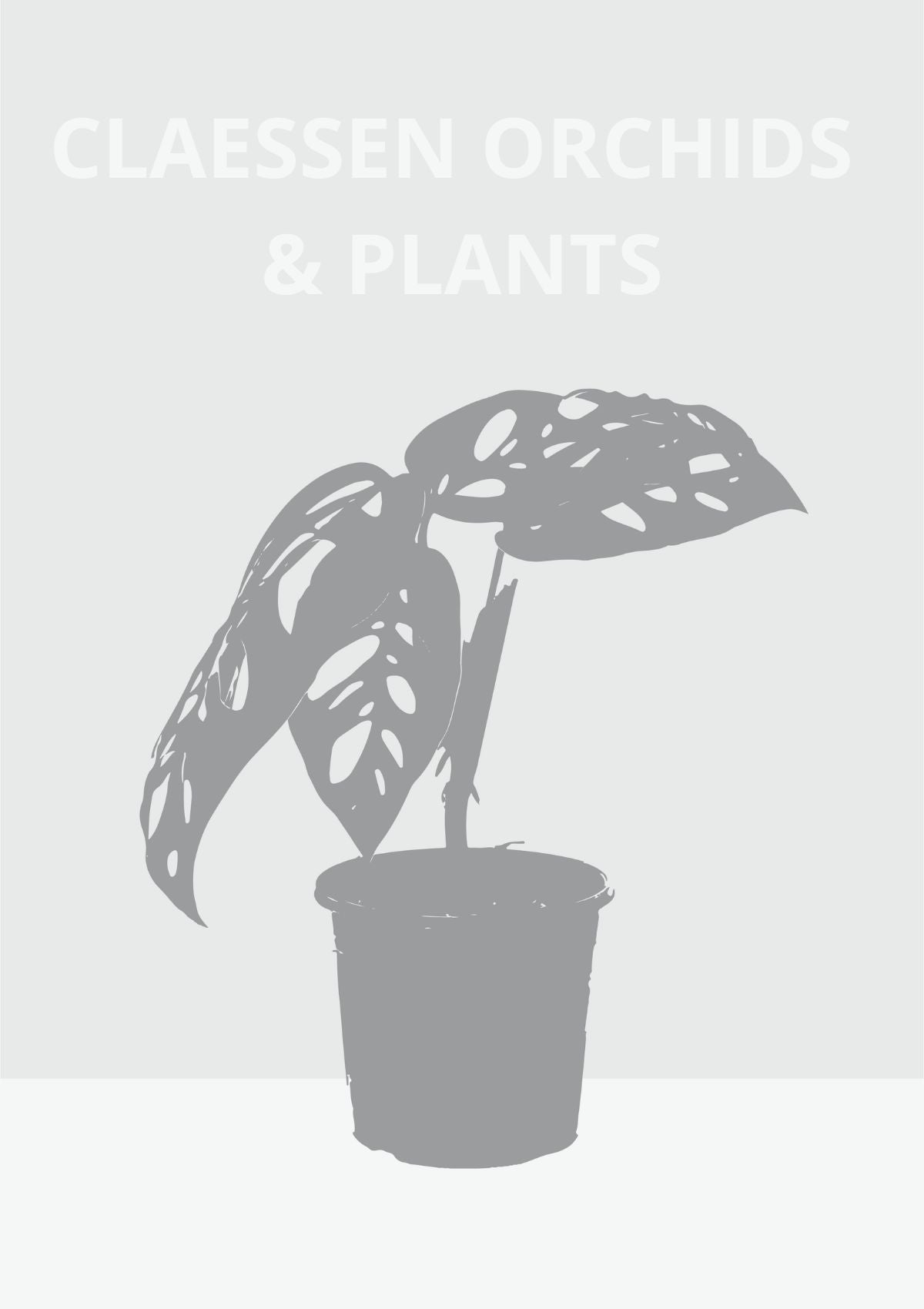
Recent bekeken
Some of these plants look like heads of lettuce when they are a bit more compact. Yet it is a true beauty when the leaves get a bit bigger. Then a beautiful antler is created. A living artwork. These plants are often used in a plant wall or a living painting. But they also serve as a pot plant.
Where does the Platycerium come from?
The Platycerium originates in Australia. Here it grows epiphytically (on other plants or trees without extracting nutrients). They usually grow on trees in Australia.
Characteristics of the Hertshoornvaren
The Hertshoorn has 2 types of leaves, with which the characteristic shape is reflected.
Sterile mantle or nis leaves
These leaves are generally somewhat wider and these ensure the firmness of the plant. They feed the plant over time by slowly digesting. This results in humus from which the plant gets energy to grow.
Fertile leaves
These leaves give the plant its name. With most Platyceriums they look like a deer of a deer and can get notches with many types of notches. These leaves are longer and often protrude a piece. They can get spore boxes at the bottom.
Hairs on the leaves
Many Platyceriums look cuddly with their hairy leaves. But did you know that this also has a function? These leaves ensure that the plant can hold water for longer. The veins that you can see in the leaves ensure the firmness of the plant.
Rare PlatyCerium species
We specialize in all the special and aparts that the plant world has to offer. For the real hobbyists looking for something that someone else does not have and is not grown en masse, there is a large assortment of oddities with us. This also applies to the Platycerium (Hertshoornvaren).
Popular species
Species that are currently very popular include the Platycerium Ridleyi and the Platycerium Madagascariense. These species show the characteristics of deeply constricted leaves early, are very rare and a pleasure to see grow. They quickly look different from the 'boring' Platycerium bifurcatum, which is now being offered everywhere.
Taking care of the Hertshoornvaren
Most Platyceriums are relatively easy to care for, but species such as the Platycerium Ridleyi and the Madagascariense still deserve some extra attention. They prefer to be in a slightly more stable and warmer climate, but also like a high humidity and an air flow (no trip!). In botanical gardens, for example, they will look great, but they are also suitable for a conservatory with more stable climate or a bathroom.
Care tips for Platycerium ferns
To keep your Platycerium in optimum condition, follow these simple care tips:
- Light and location: Place your Hertshoornvaren in a location with clear, indirect light. Avoid direct sunlight to prevent leaf burning.
- Water needs: Hertshoorn ferns have moderate water needs. Keep the soil moist evenly, but prevent the roots from being in water.
- Humidity: Platyceriums thrive well in a damp environment. Spray the leaves with water or place a humidifier nearby.
- Temperature: They prefer temperatures between 18-24 ° C. Protect them against cold journey and frost.
- Power supply: Use a balanced fertilizer to feed your Platycerium monthly during the growing season.
New types of Platycerium available!
This plant is currently very popular and is being wanted more and more. Yet there are few companies that they currently offer. That is why we are one of the few who can get very special species. More will follow soon, so keep an eye on this page if you have become enthusiastic about more!

